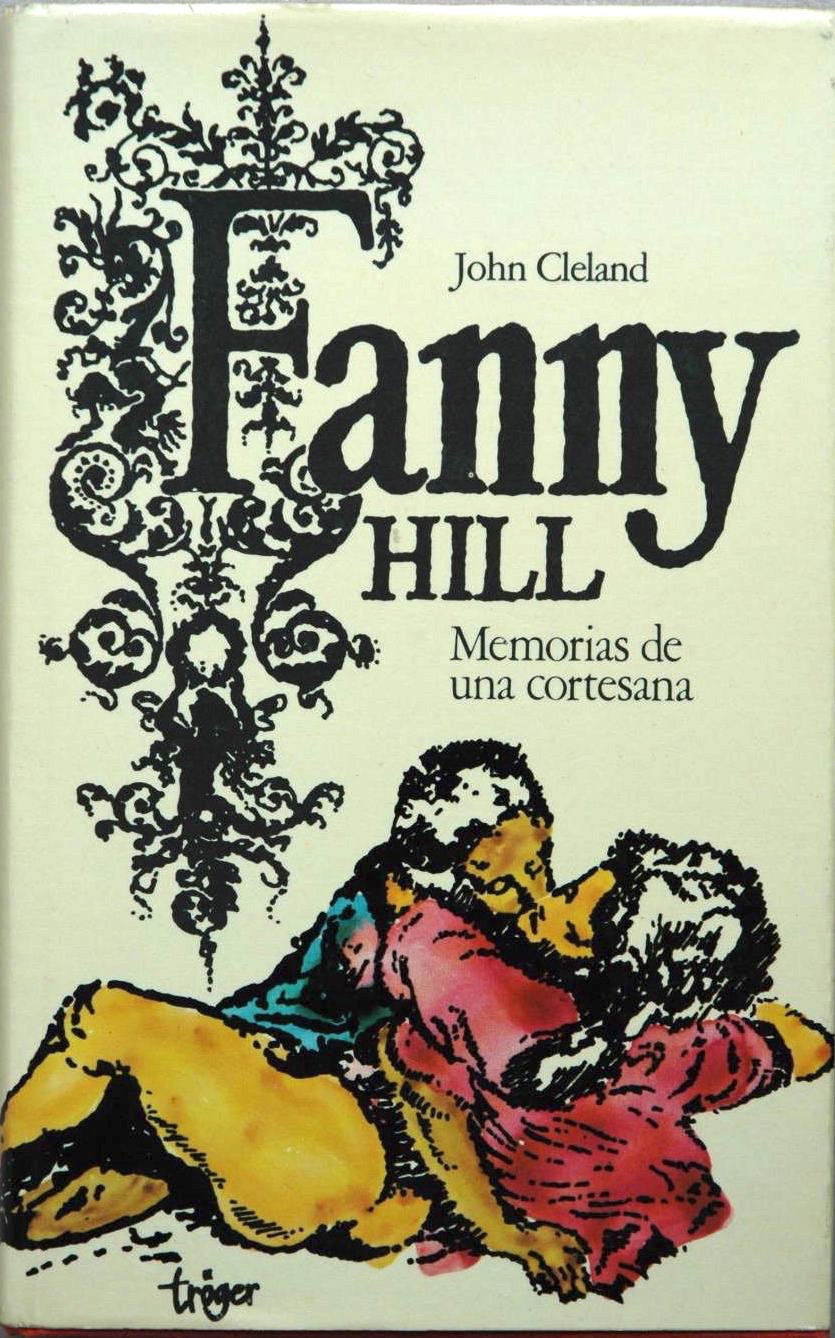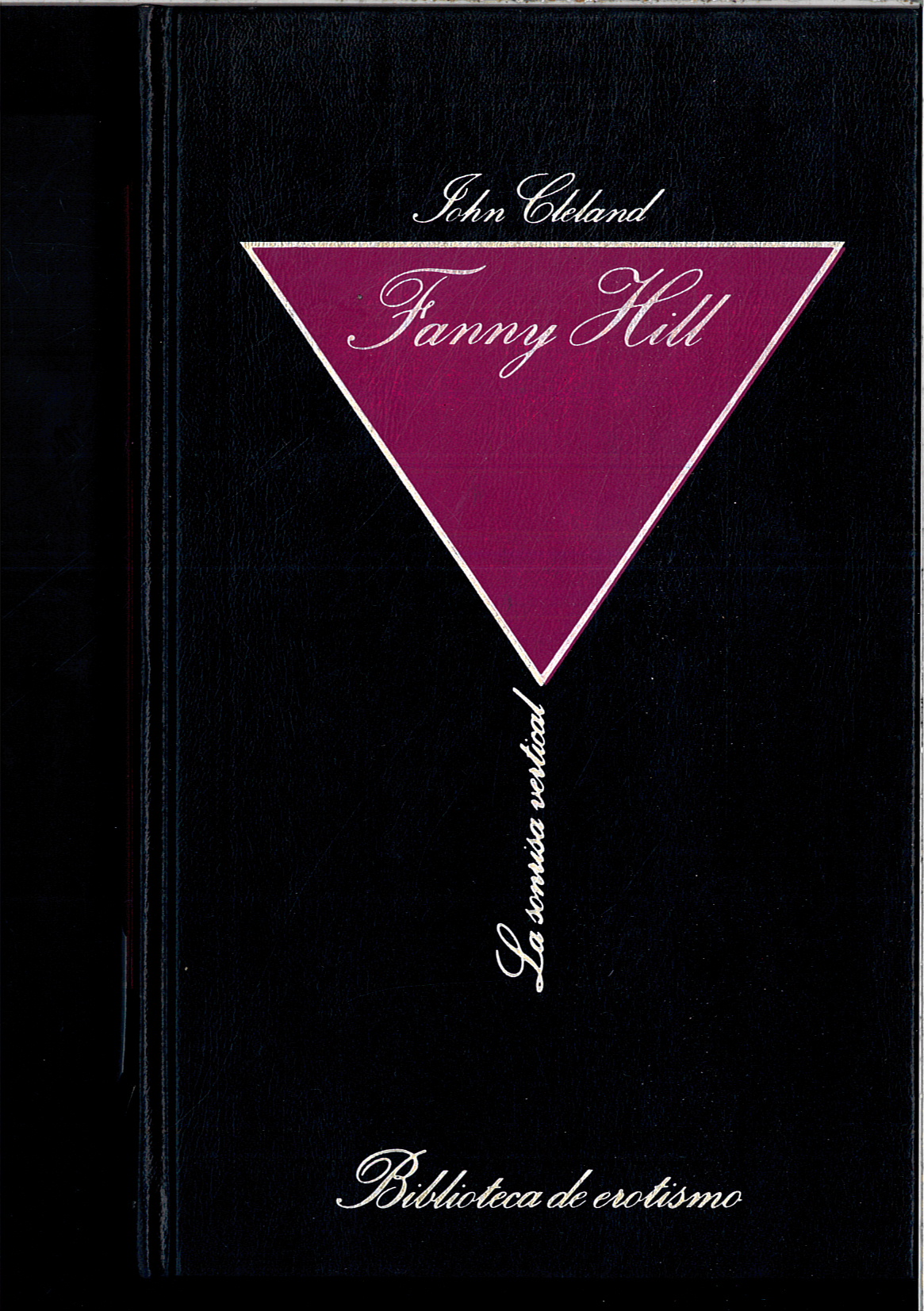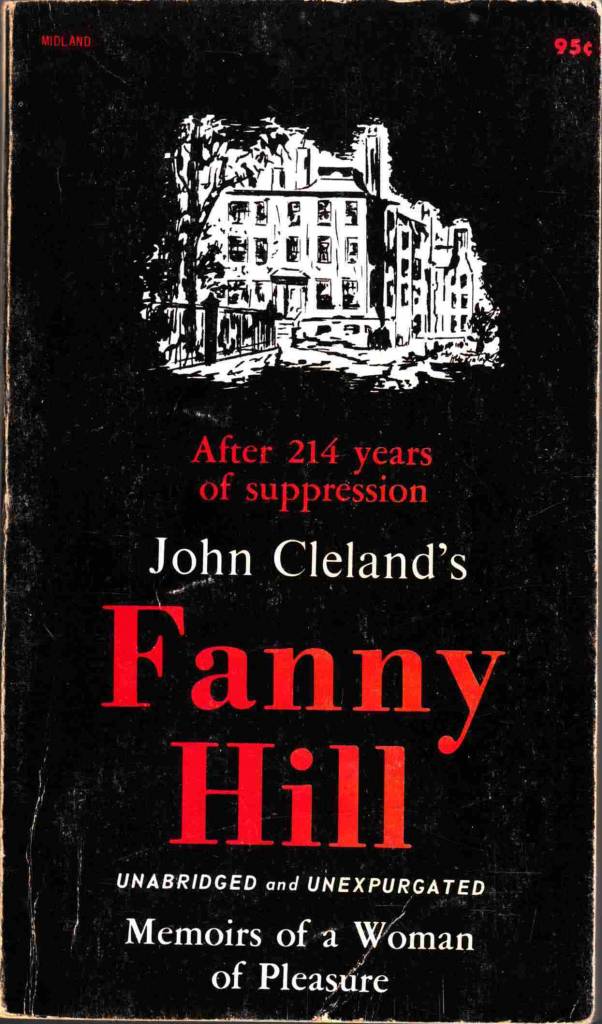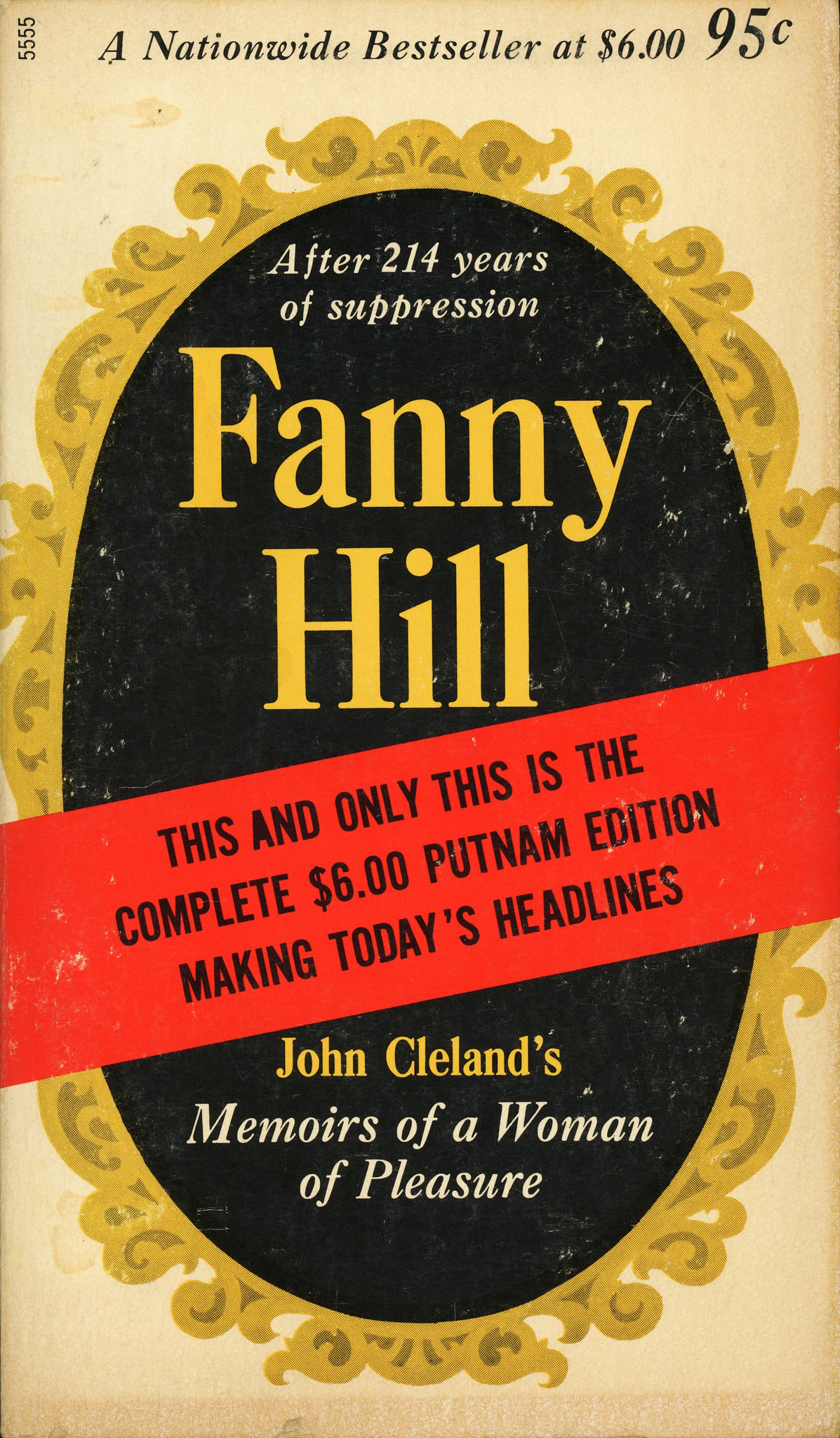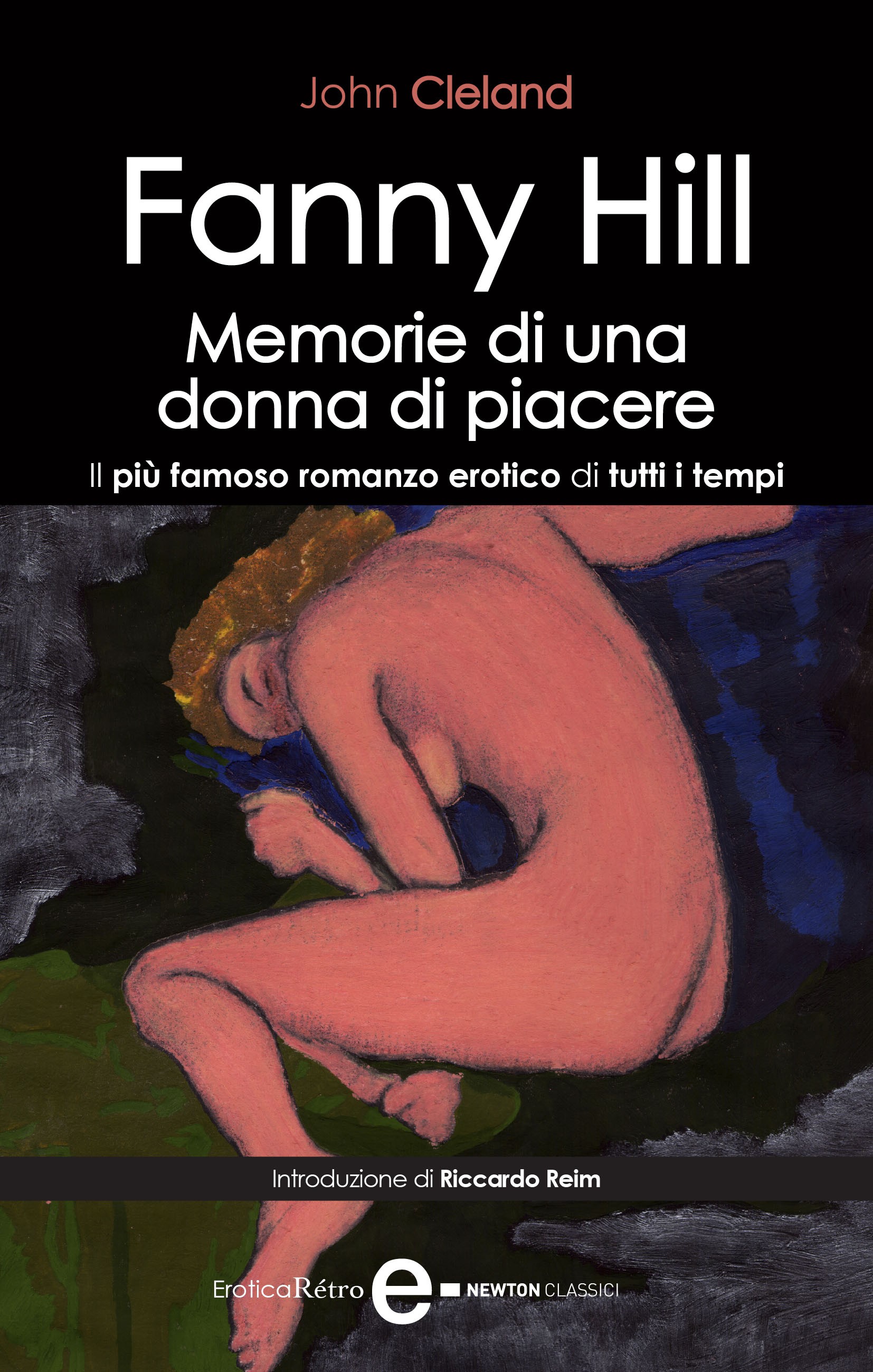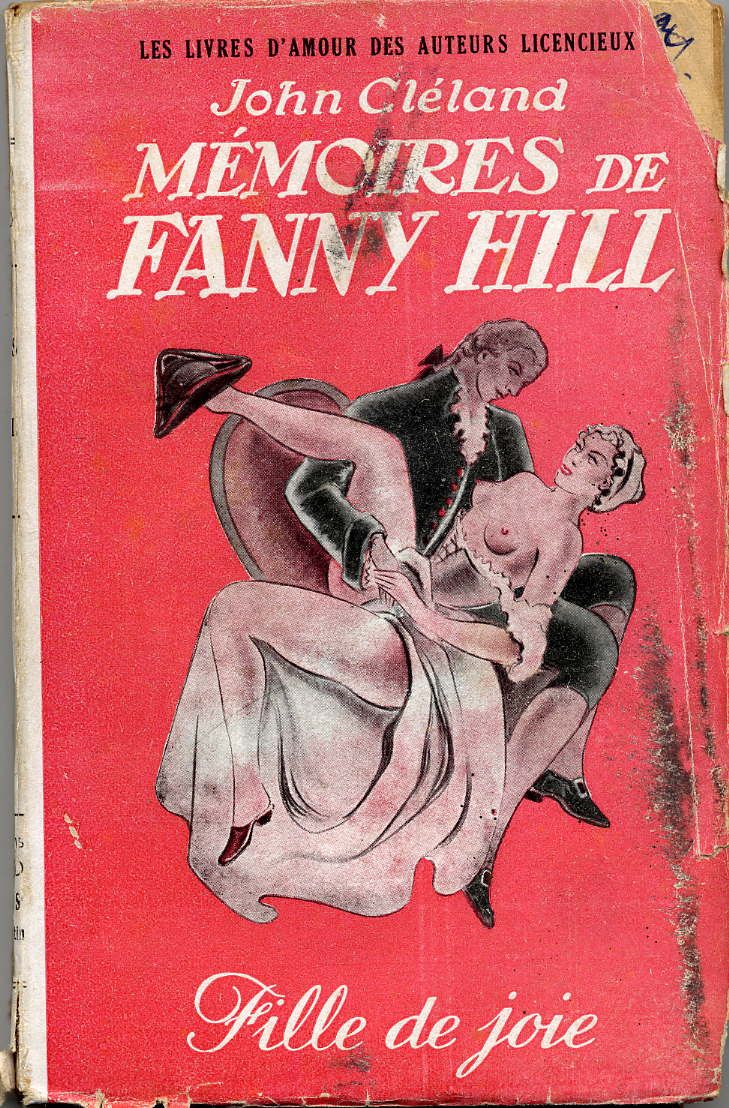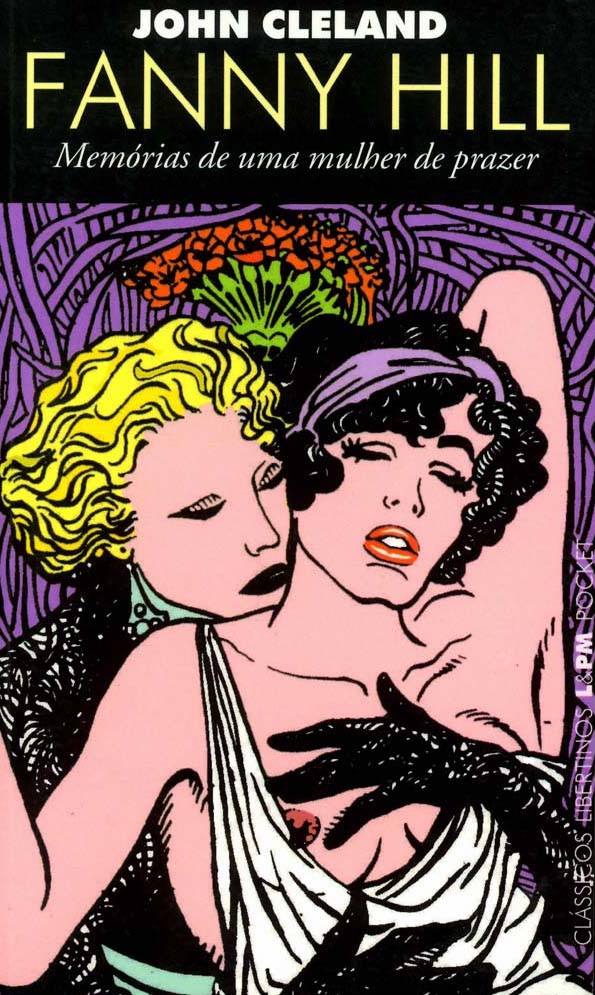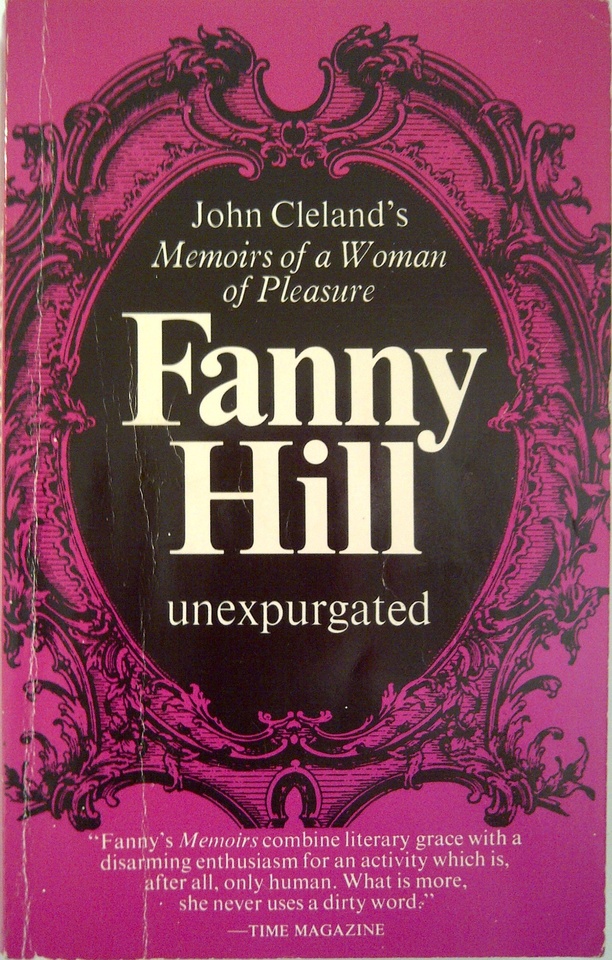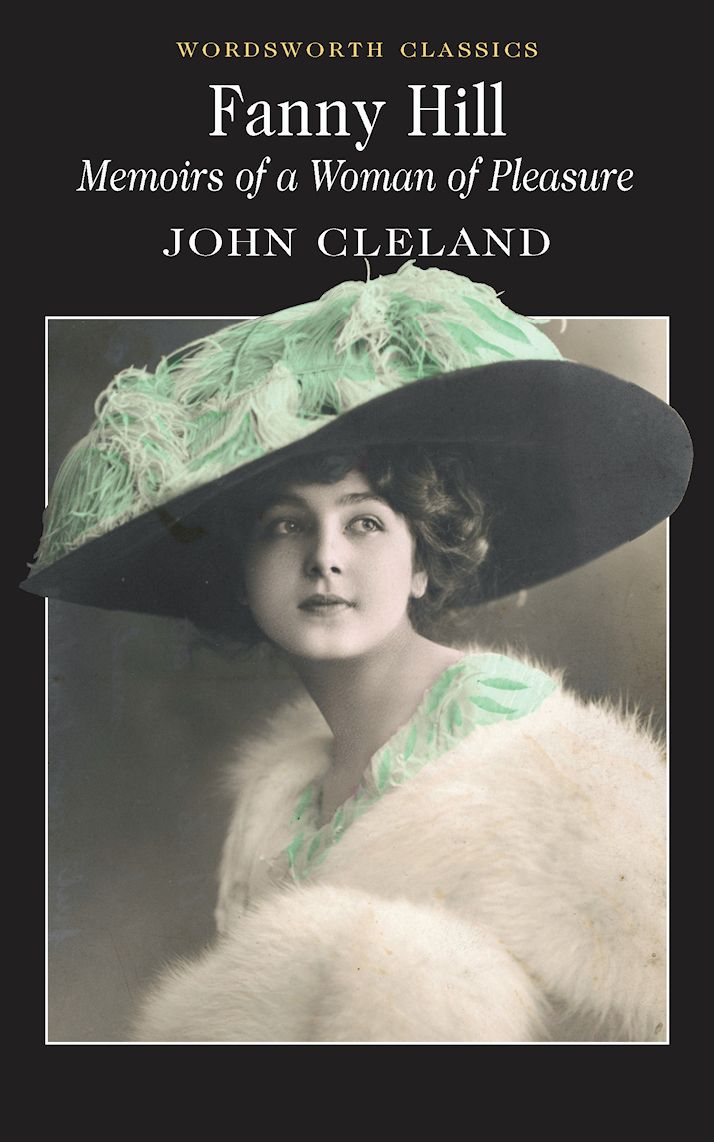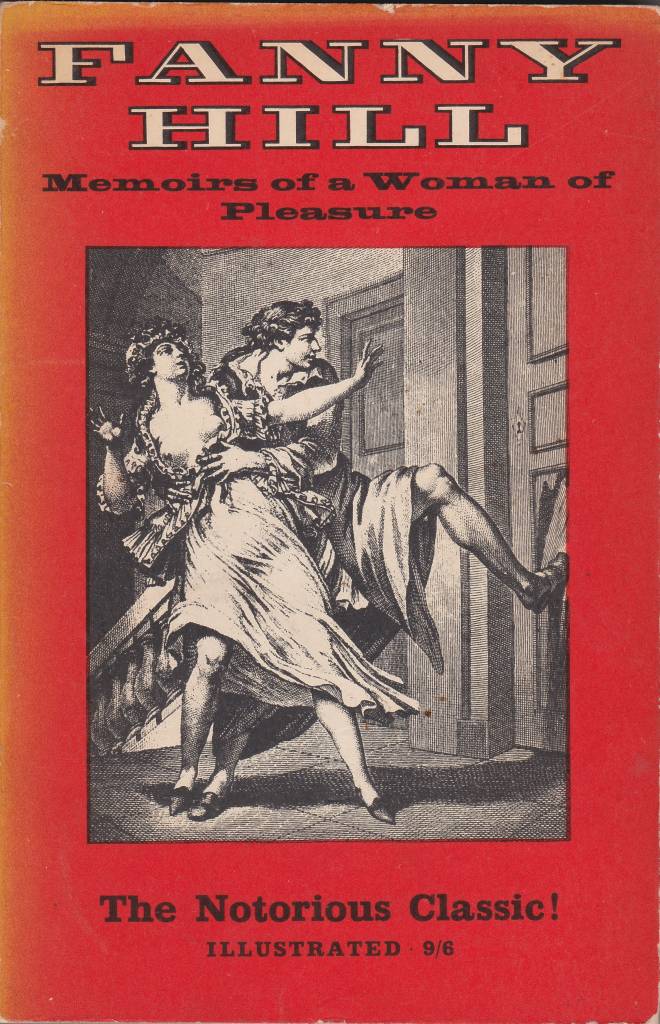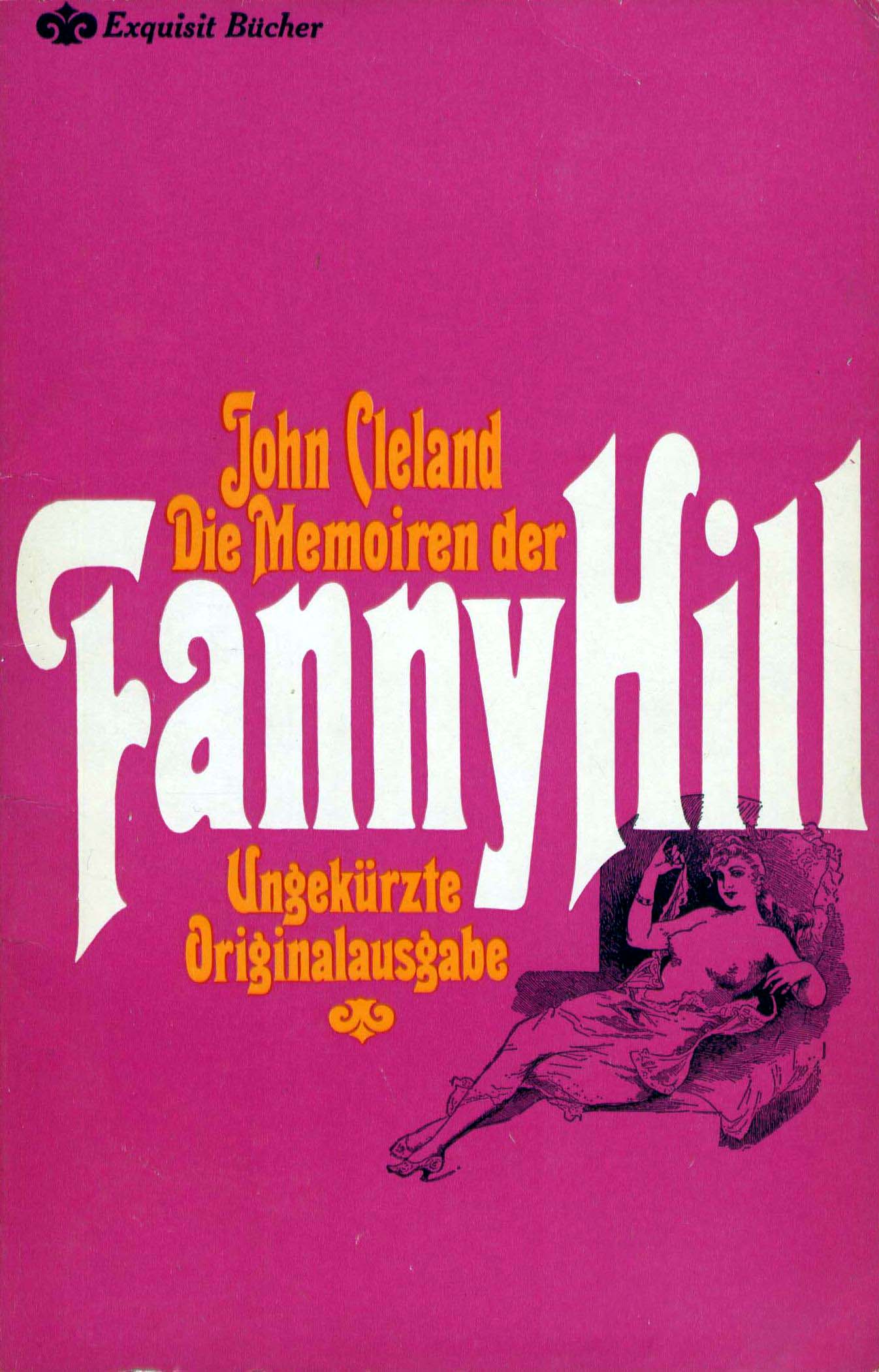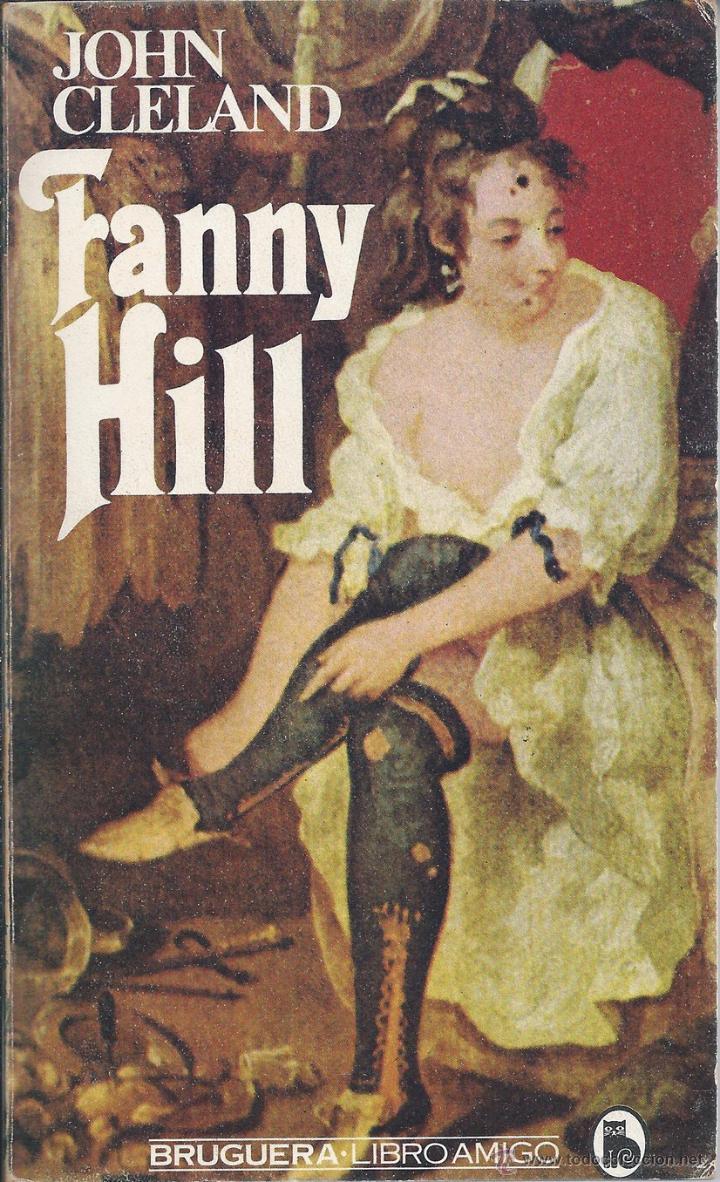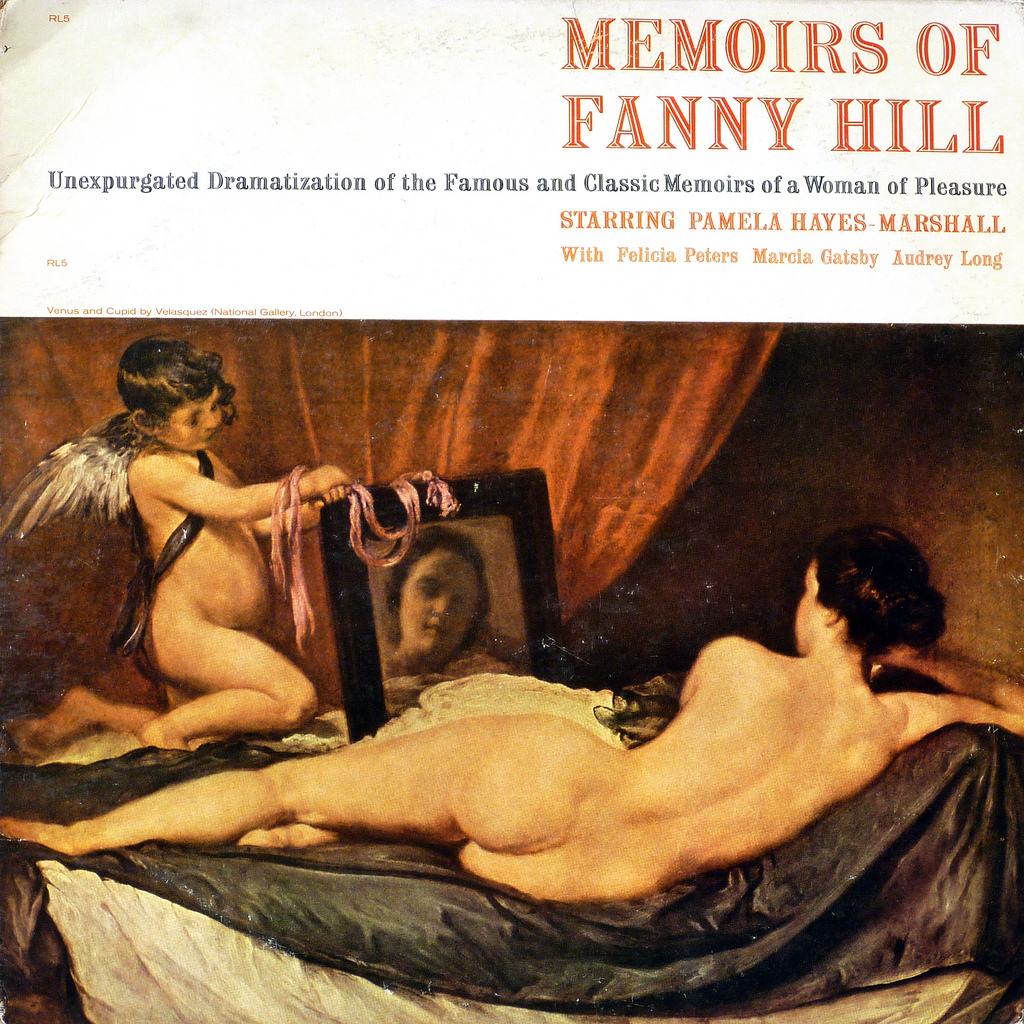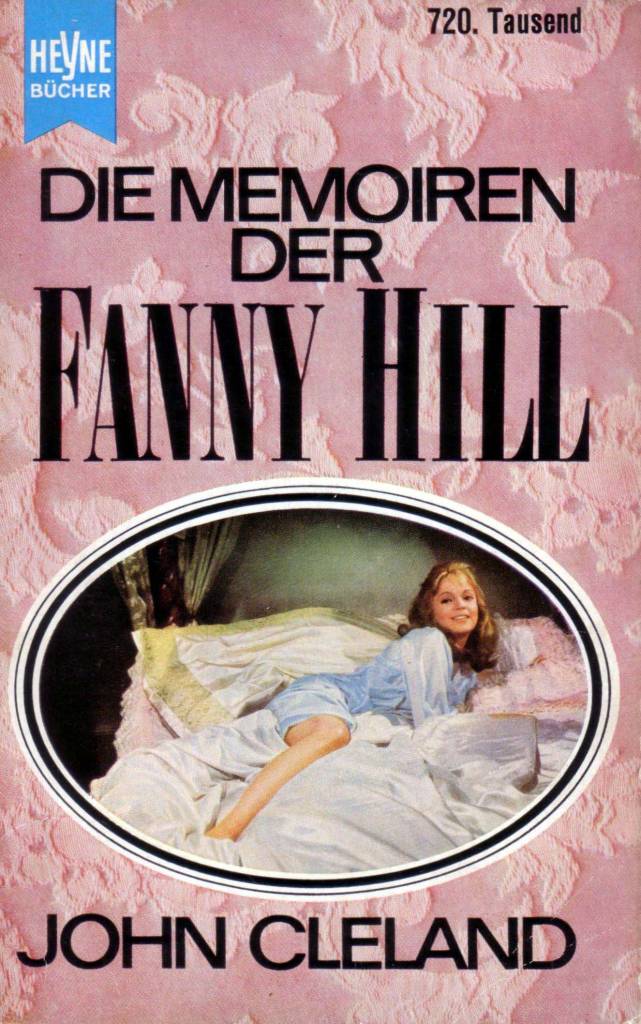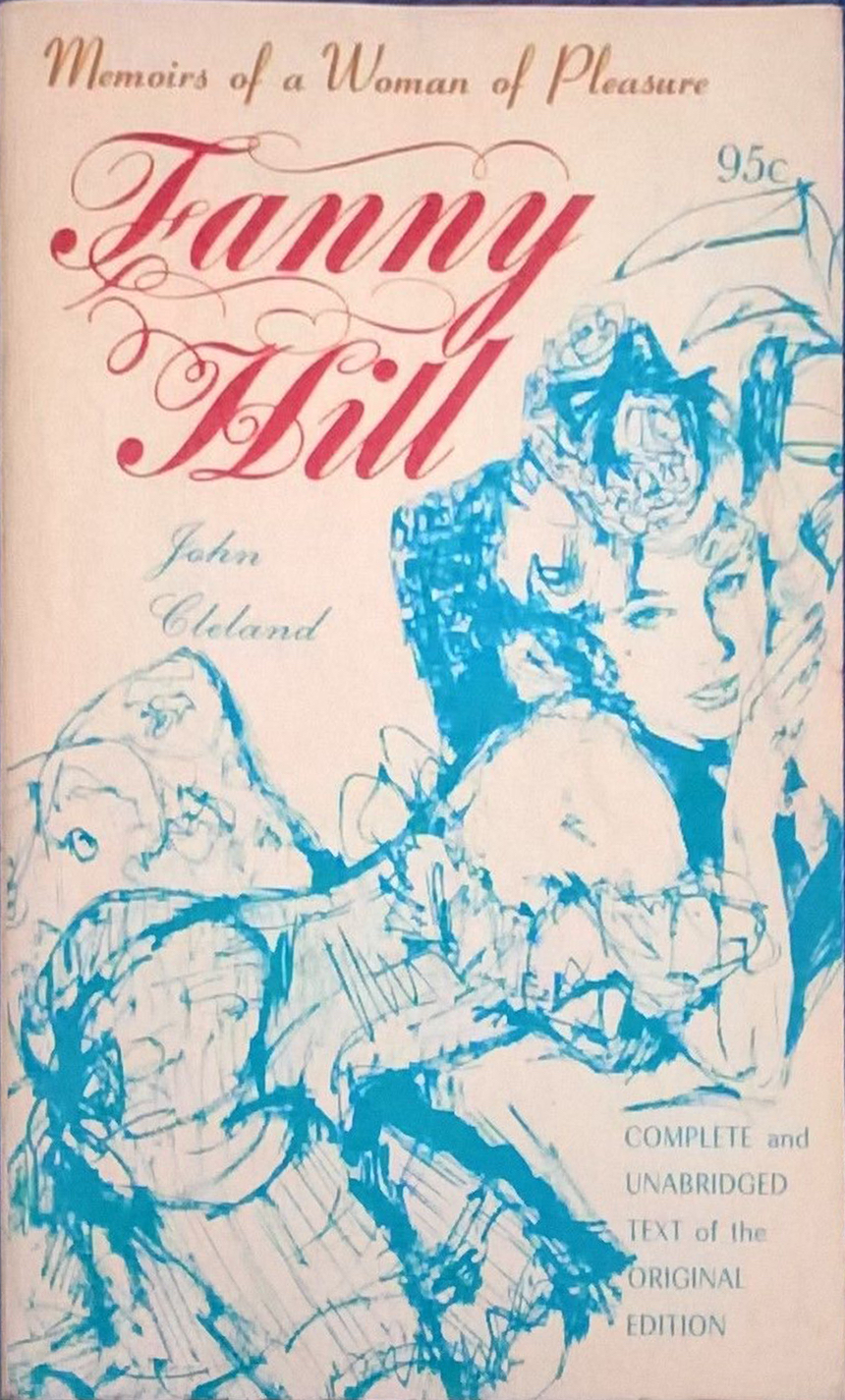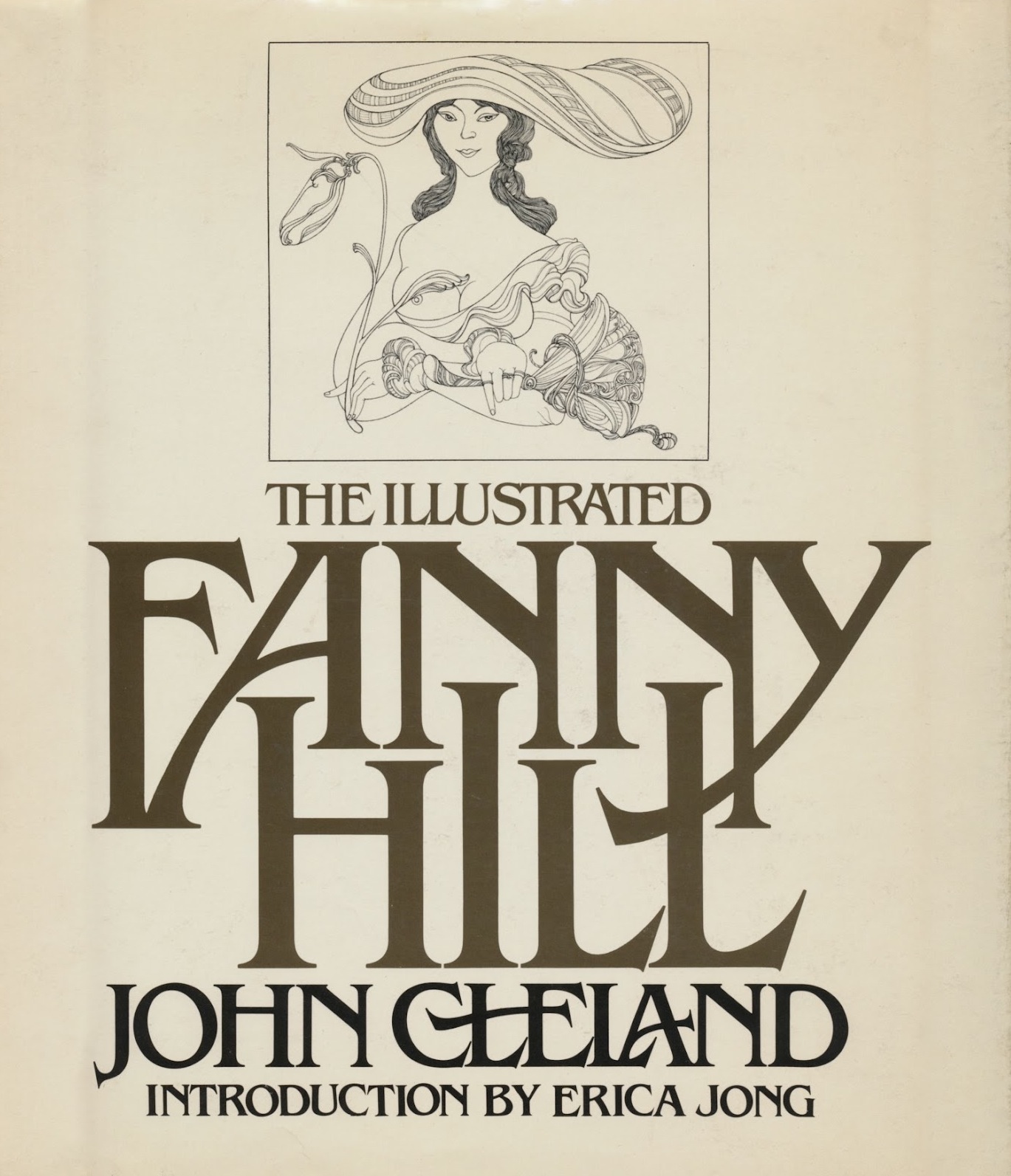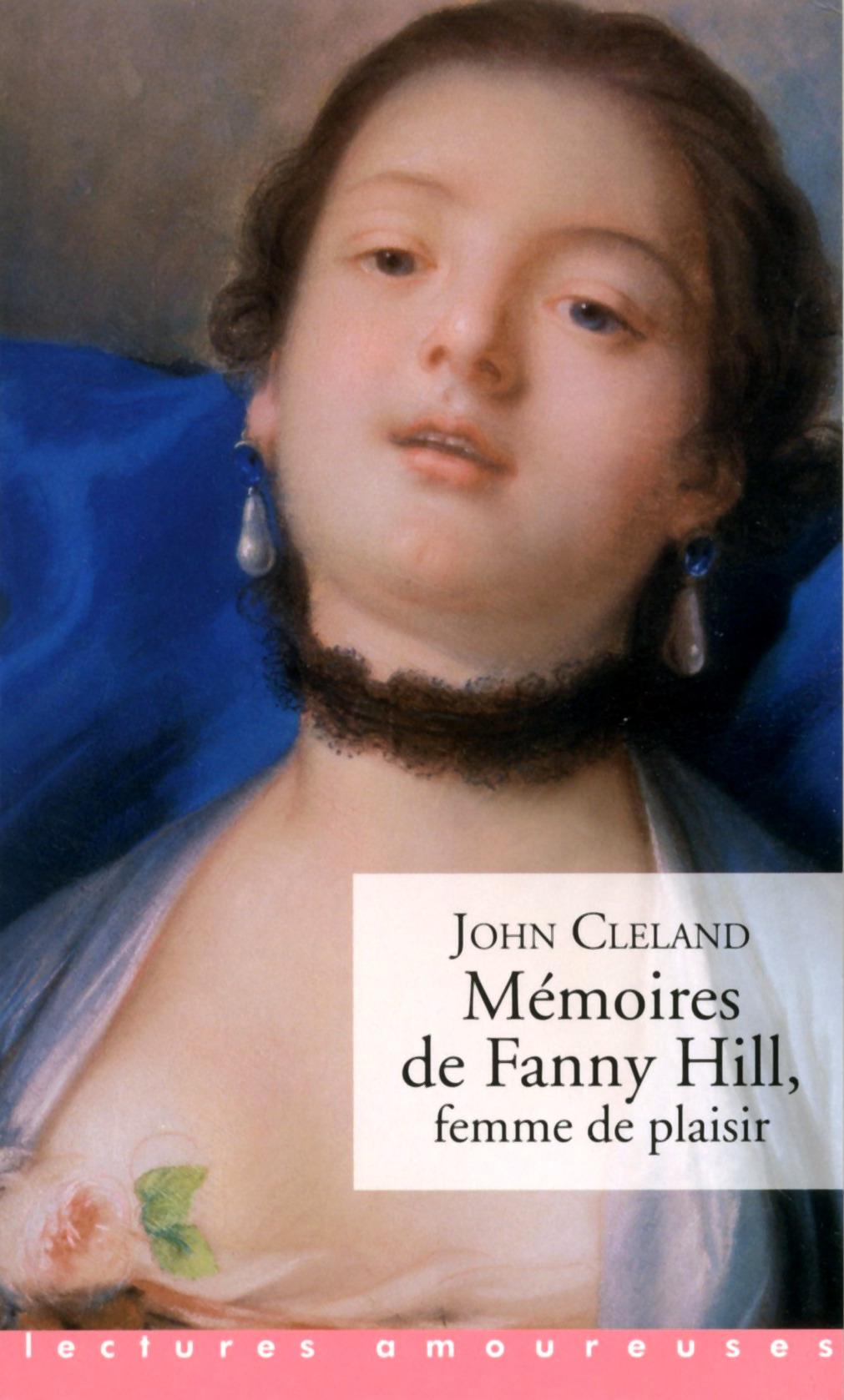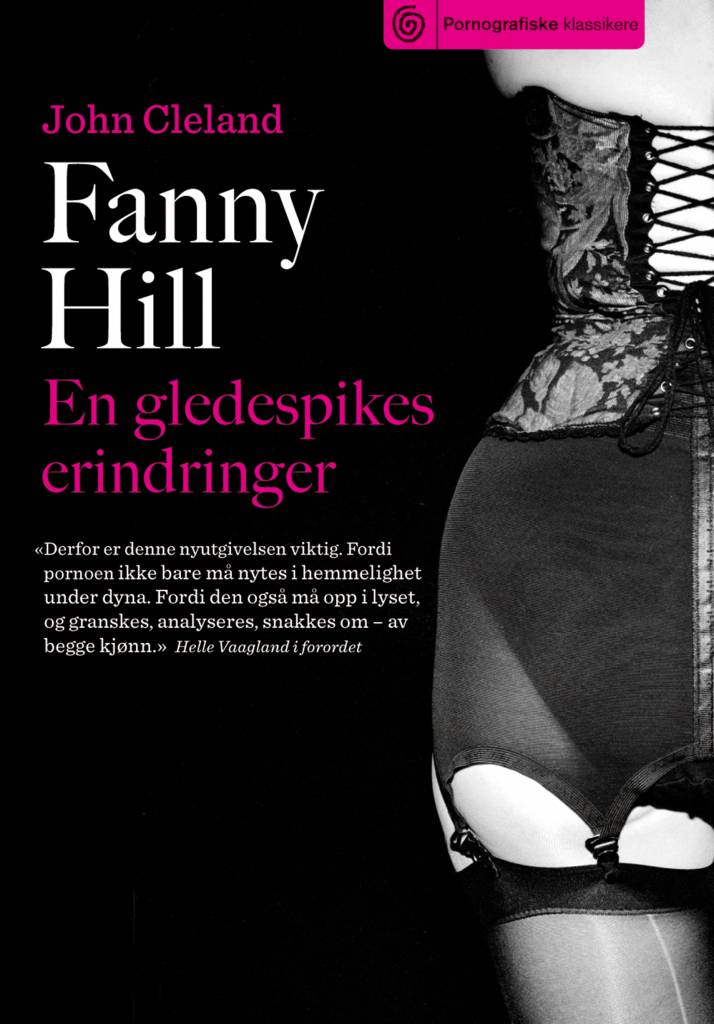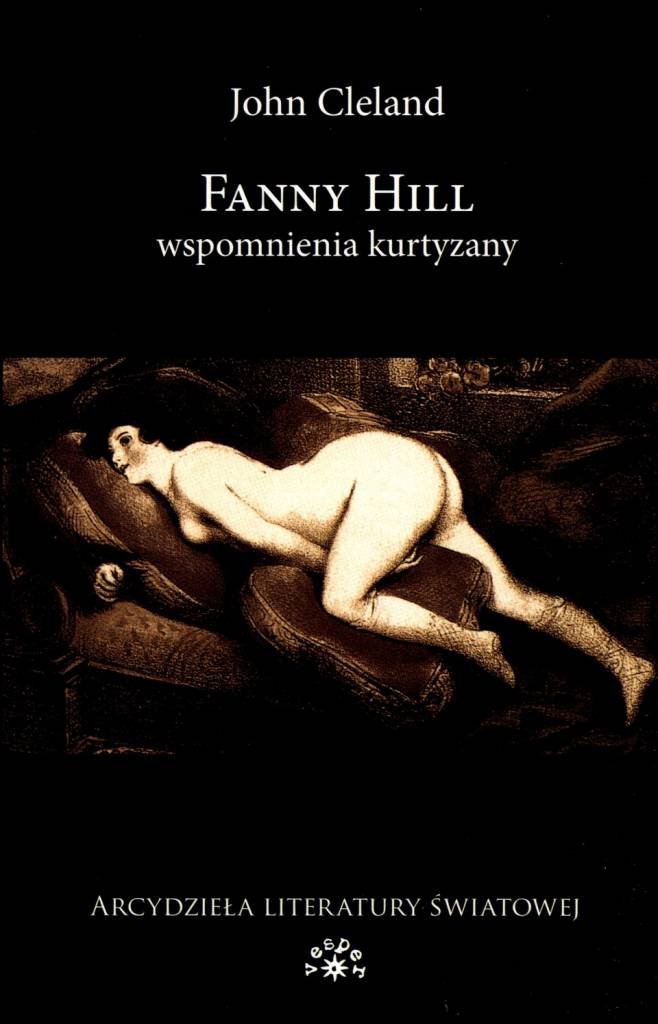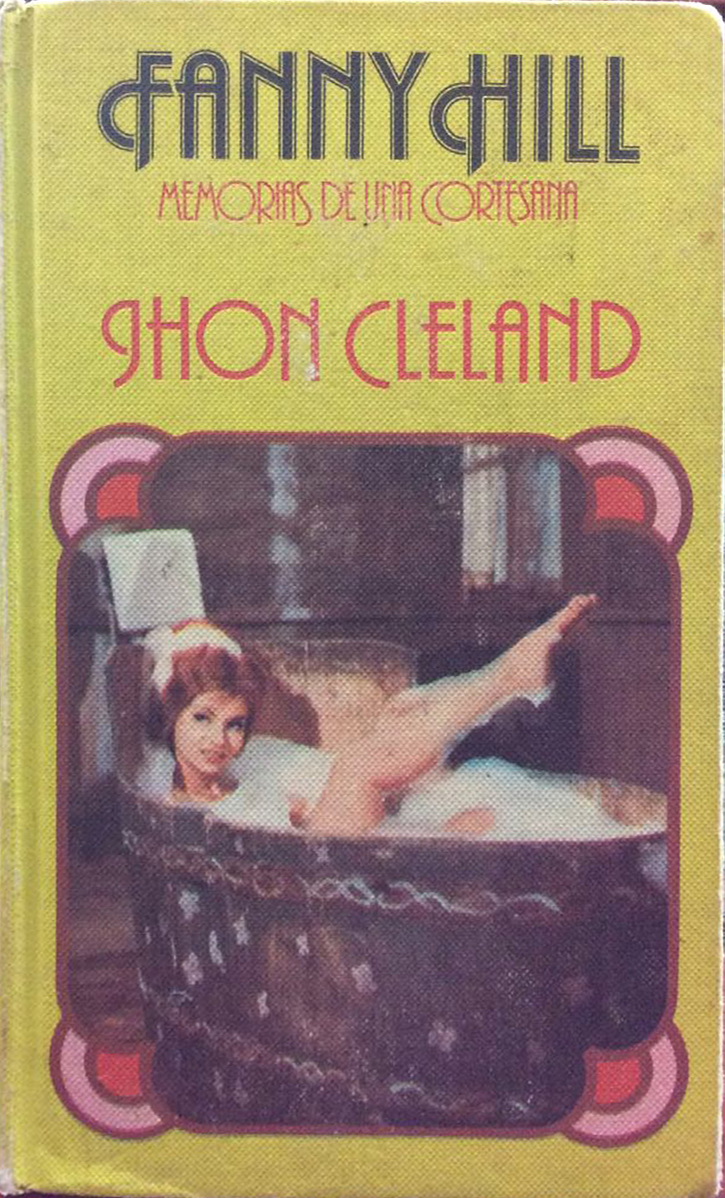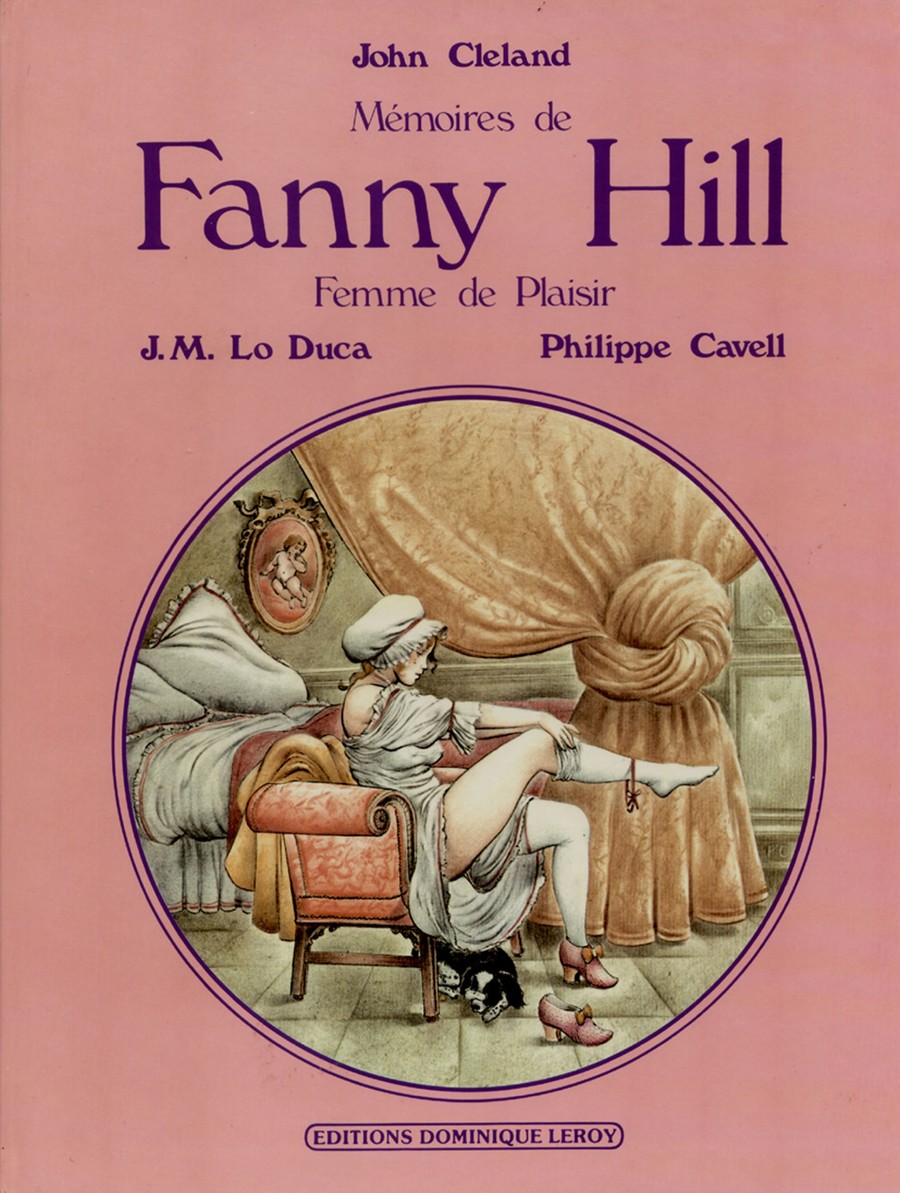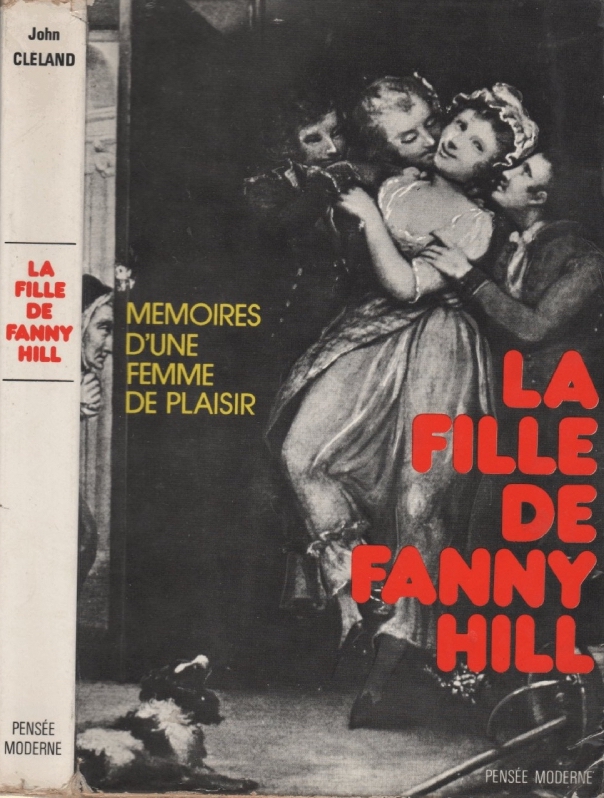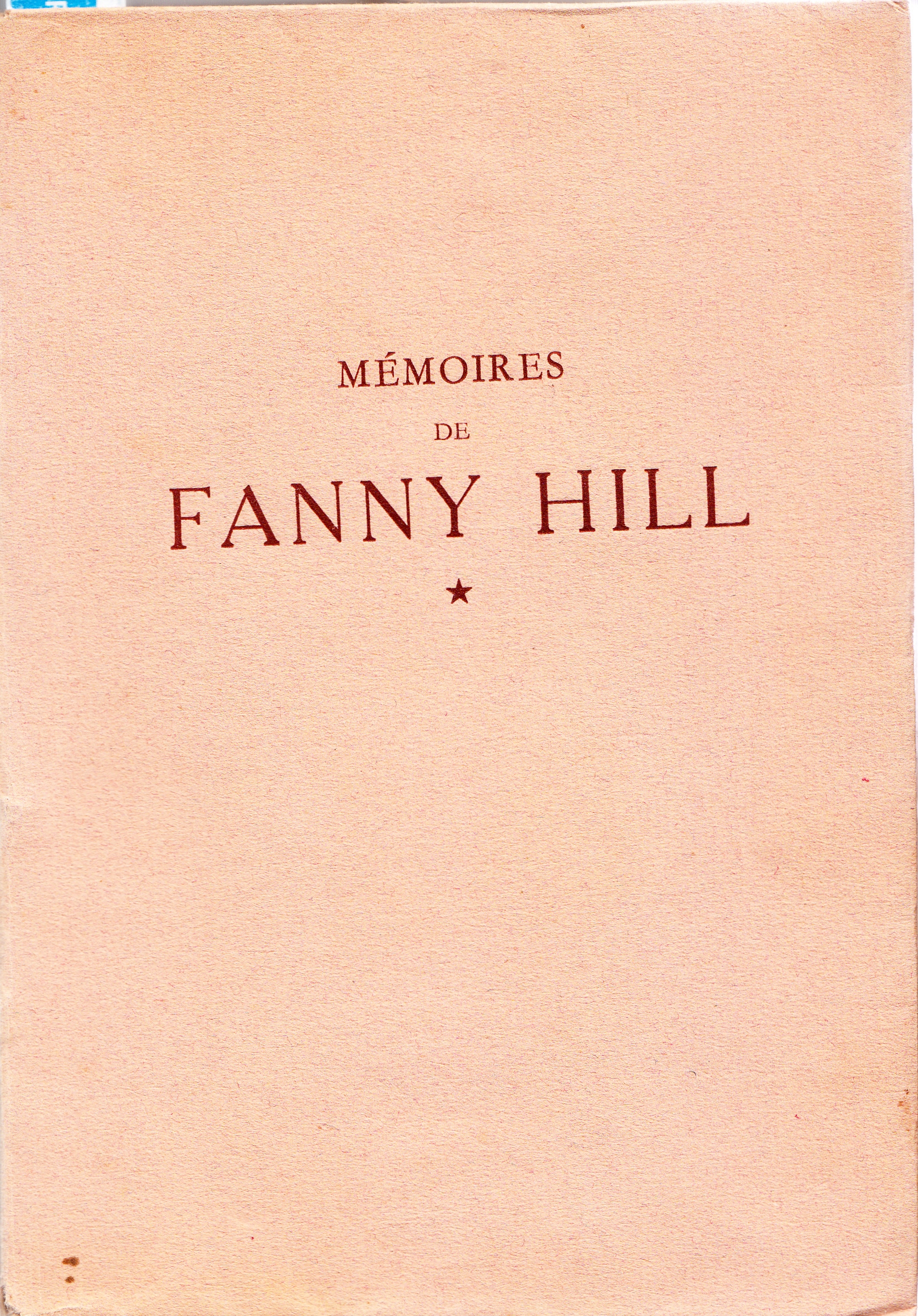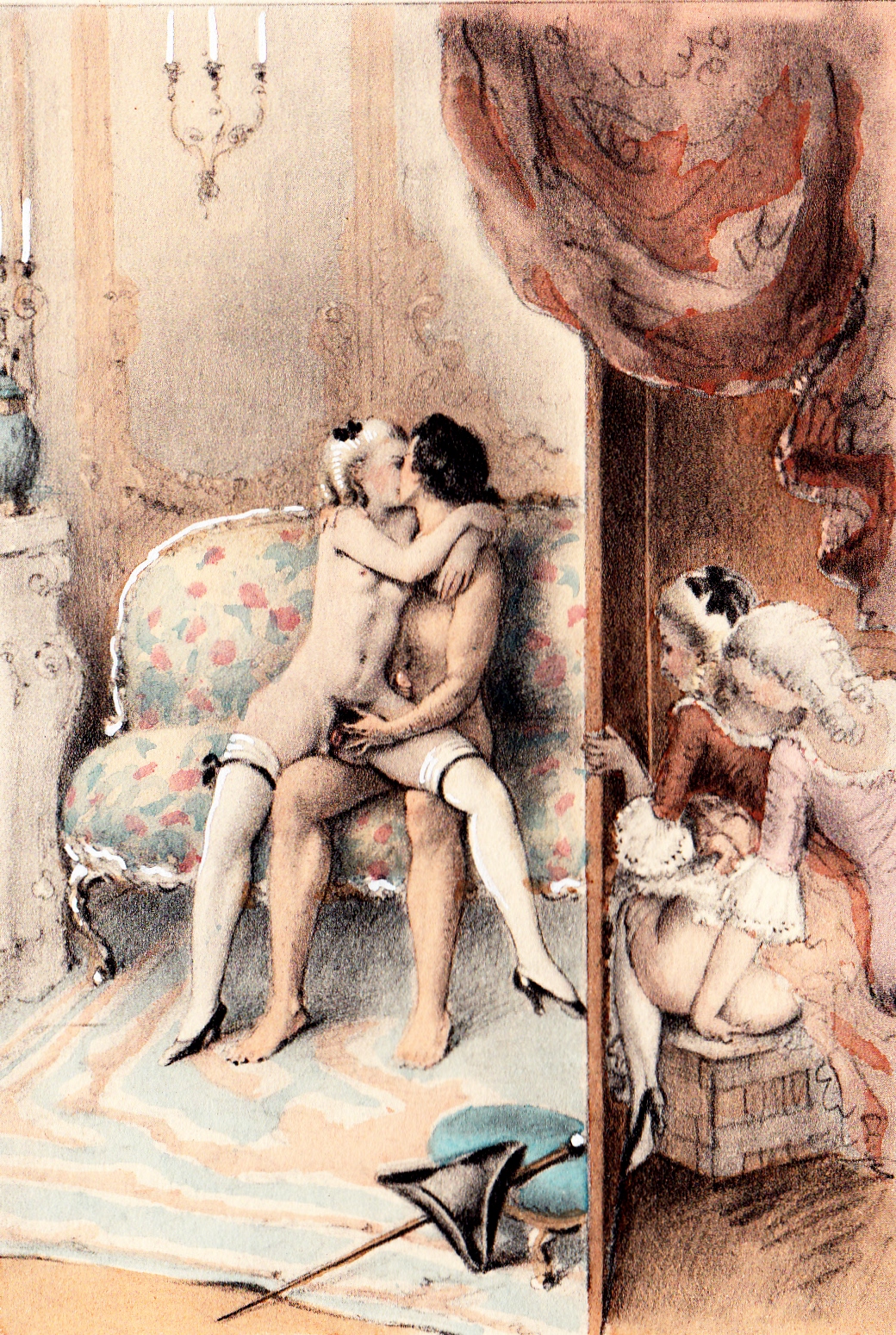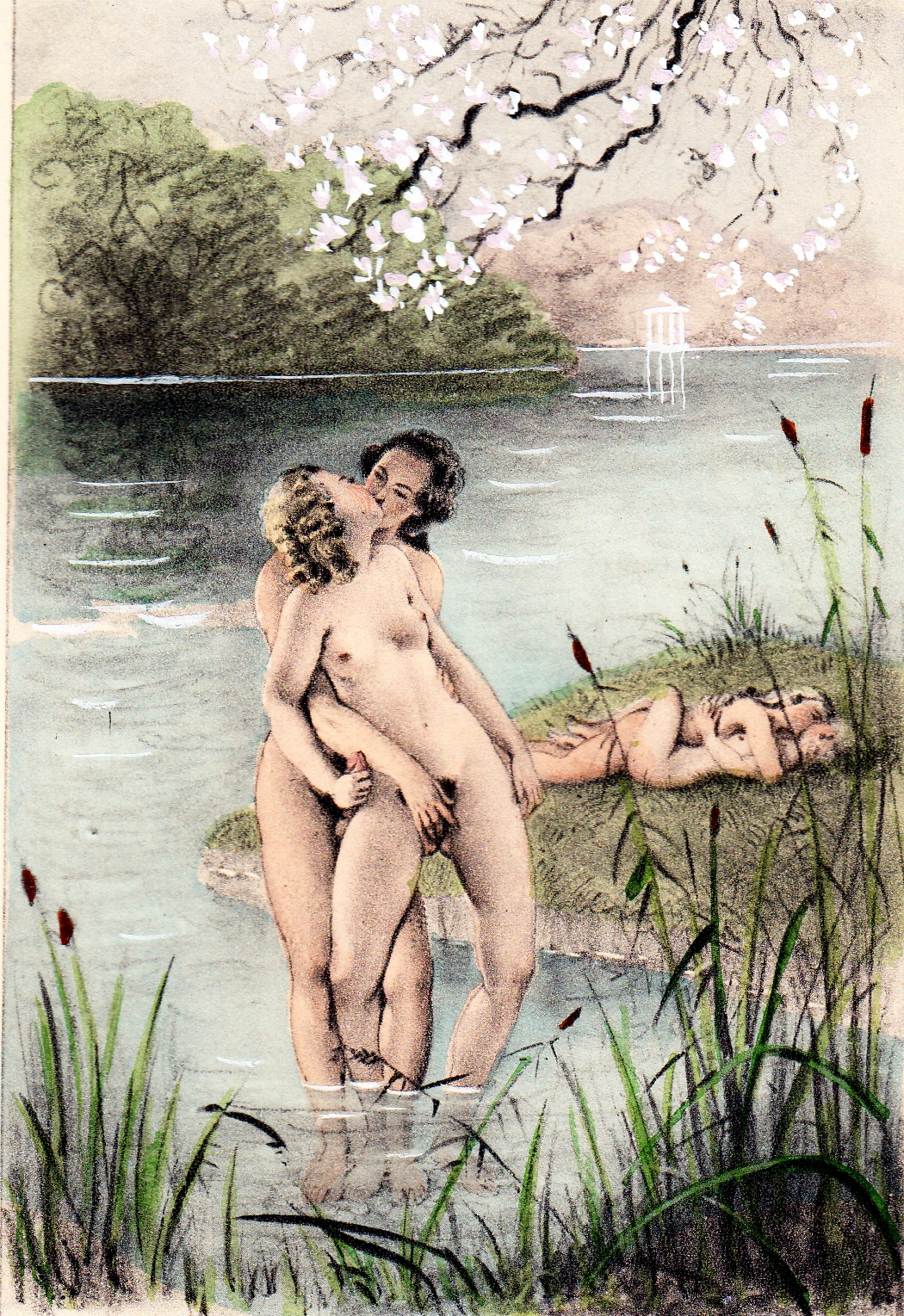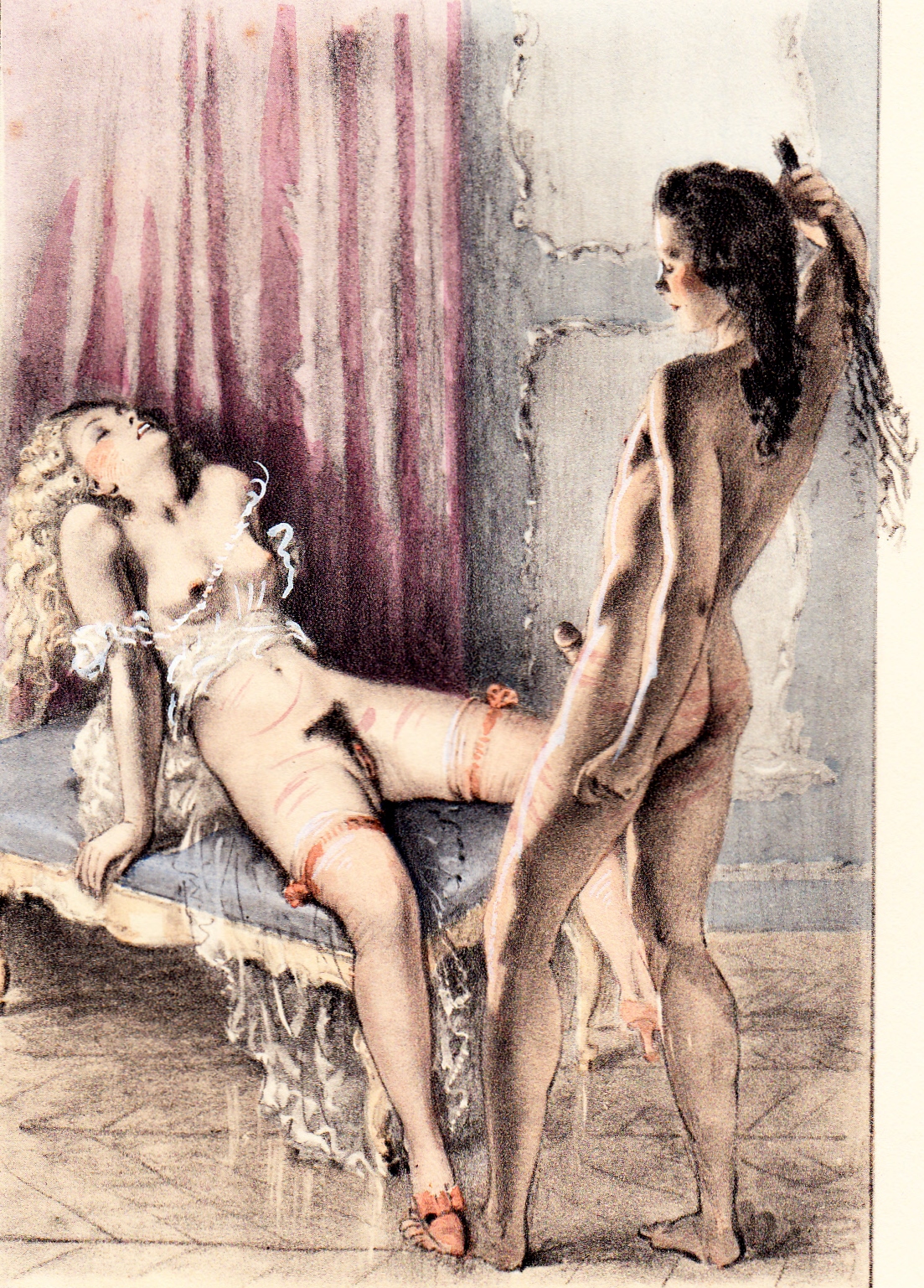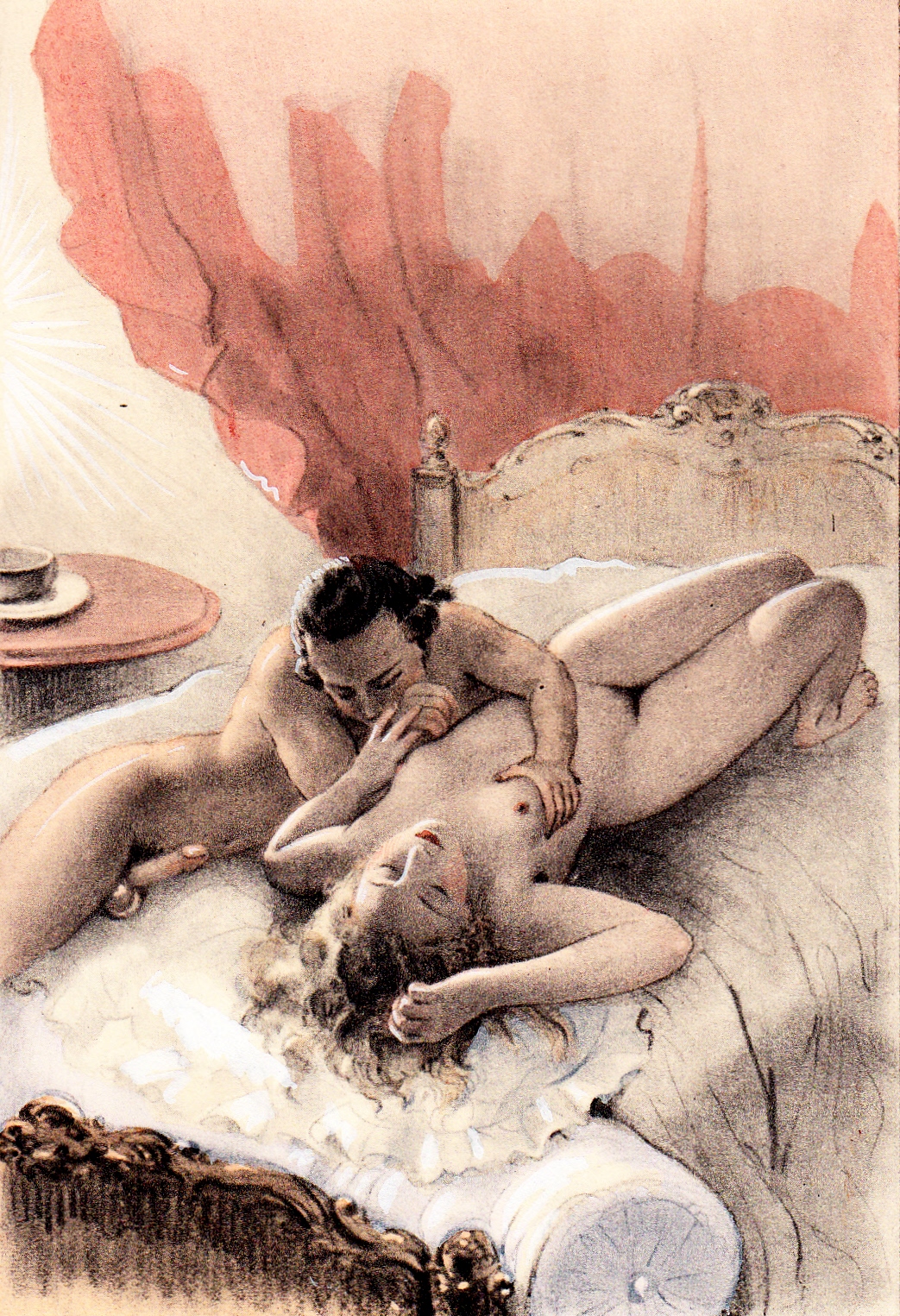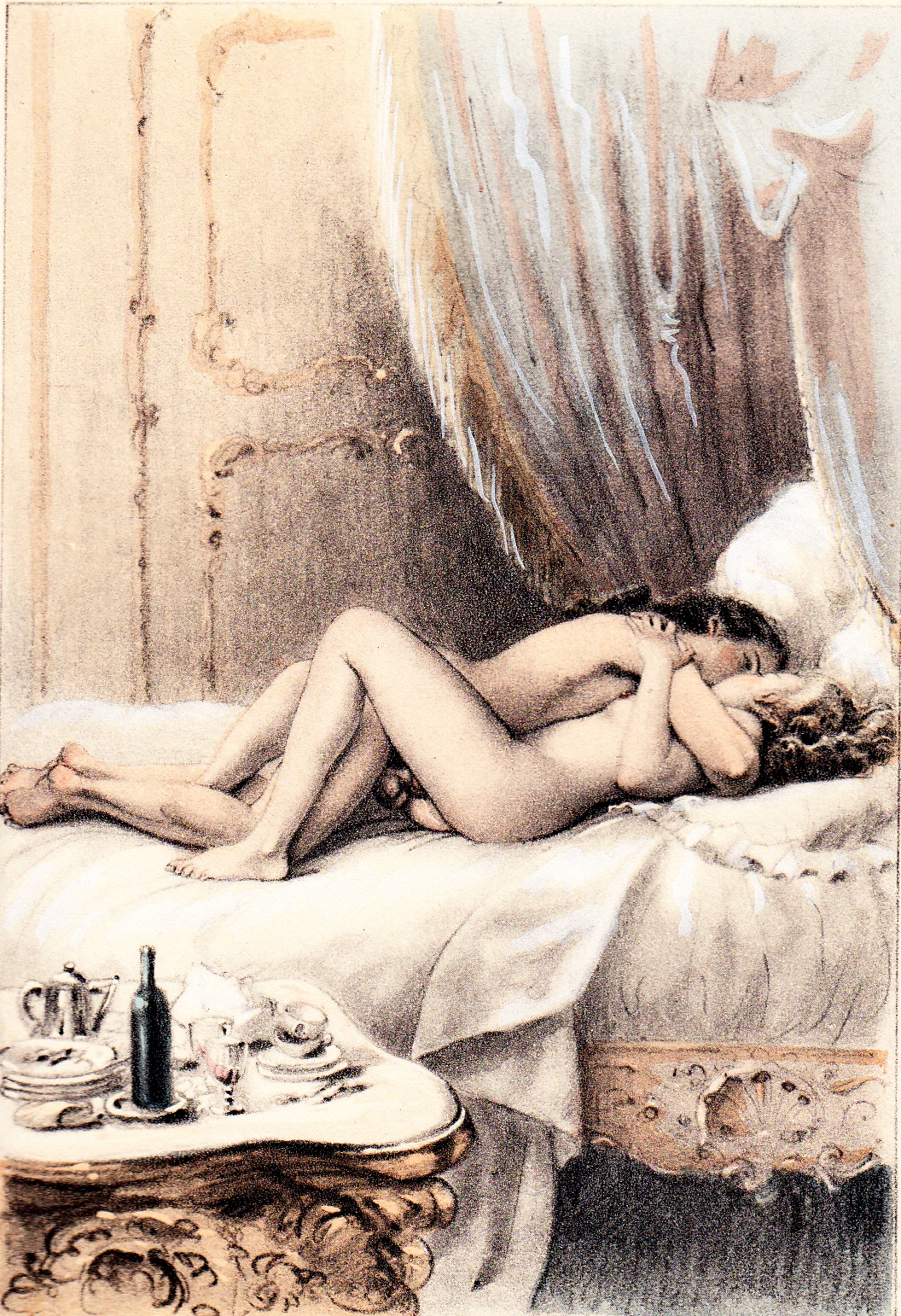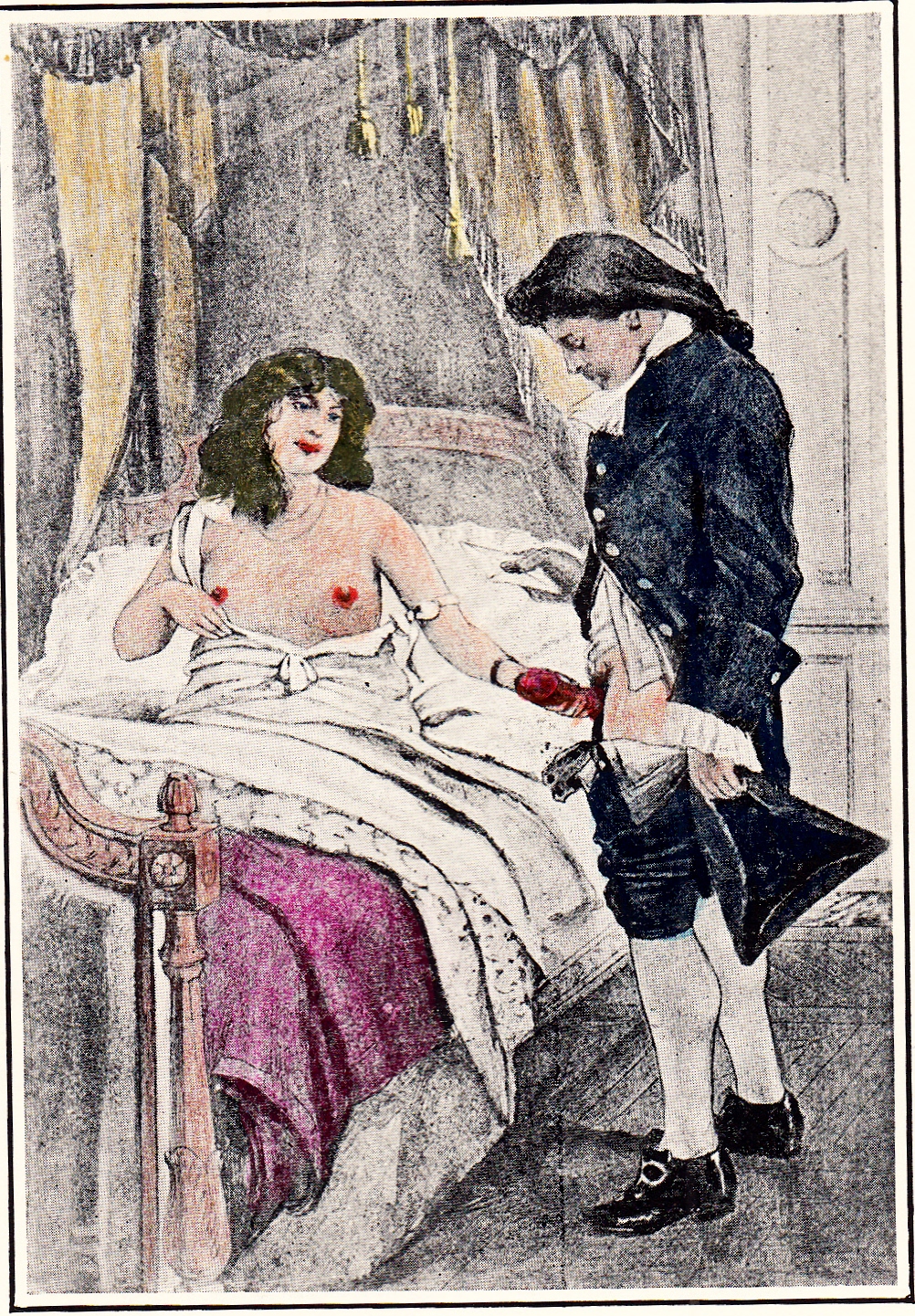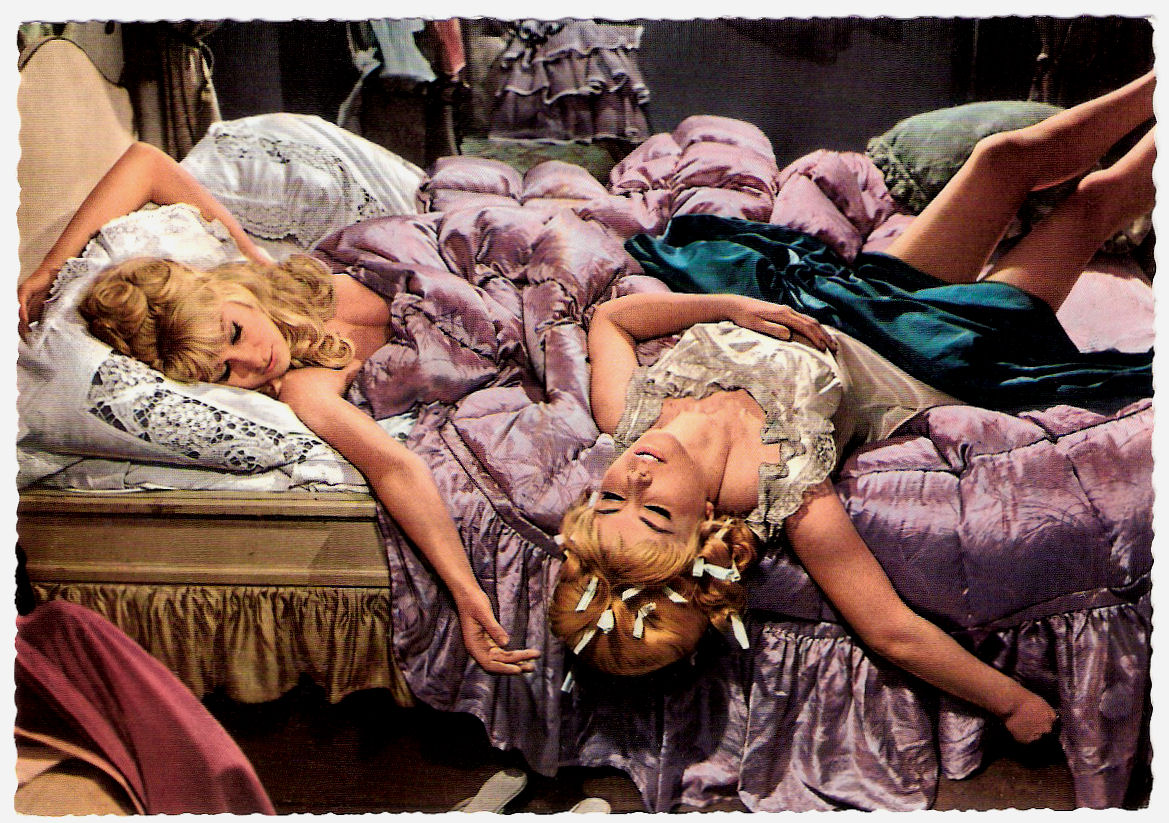I thrill / To any book like Fanny Hill, / And I suppose I always will, / If it is swill / And really fil- / thy. – Tom Lehrer
First published almost two hundred and seventy years ago and one of the most prosecuted and banned books in history, Memoirs of a Woman of Pleasure, more popularly known as Fanny Hill was written by John Cleland in debtors’ prison in London in 1748. It is said to be the first original English prose pornography. Author and historian Julie Peakman writing for History Today Magazine describes as ‘a revelation in that it incorporated pornographic scenes in a novelistic form, a feat never previously undertaken in English literature.’ Told in great sexual detail the novel follows the life of a young English country girl – Fanny Hill – who goes to London and becomes a prostitute. The book was quickly banned and became an under the counter best seller ever since. It wasn’t until over 220 years later that the erotic novel became available to the UK general public.
In 1963 Mayflower Books published an unexpurgated paperback version of Fanny Hill. A police officer bought a copy from the Magic Shop on Tottenham Court Road owned by Ralph Gold. The Bow Street magistrate Sir Robert Blundell issued a search warrant and the police visited Mayflower Books on Vauxhall Bridge Road and seized 171 copies of Fanny Hill from the Magic Shop. In December Gold was summonsed under section 3 of the Obscenity Act but by then Mayflower had distributed 82,000 copies. The trial took place in February 1964 with defence arguing that the 18th Century erotic novel was a joyful celebration of normal non-perverted bawdy sex rather than pornography. The prosecution countered by highlighting a scene involving flagellation and won the case. Mayflower decided not to appeal and it wasn’t until 1970 that an unexpurgated version of Fanny Hill was published in the UK. In 2007 the BBC broadcast a version of Fanny Hill as their latest costume drama.
Lita Grey once wrote in her autobiography that her husband Charlie Chaplin would “whisper references to some of Fanny Hill’s episodes” to arouse her before making love. At this time, in the mid 1920s it had been banned in the US for over 100 years and was actually the first known obscenity case in America. In 1821 a Massachusetts court convicted Peter Holmes for printing a “lewd and obscene” novel. Although the case with to the Massachusetts Supreme court (Holmes claimed that the jury had not had the chance to read or review the book) the Chief Justice wrote that Holmes had tried to “debauch and corrupt, and to raise and create in [citizens’] minds inordinate and lustful desires, knowingly, unlawfully, wickedly, maliciously, and scandalously”. In the end he lost the appeal when Chief Judge Parker declared that “It can never be required that an obscene book and picture should be displayed upon the records of the court: which must be done, if the description in these charges is insufficient. This would be to require that the public itself should give permanency and notoriety to indecency, in order to punish it.
Fanny Hill was re-published in the US in an unexpurgated form in 1963 and again the Massachusetts court ruled that the book was pornographic and thus not protected by the First Amendment. This time, however, the case went all the way to the United States Supreme Court. The recently retired Justice Paul E. Pfeifer once wrote of the more recent case:
The 1957 case had established a three-part test to determine if a book should be considered obscene. Accordingly, a book was obscene if the dominant theme appealed to a prurient interest in sex, if the material was patently offensive, and if it was utterly lacking social value.
The Massachusetts high court had determined – with testimony from literature professors – that Fanny Hill had a modicum of social value. That was enough for the Supreme Court, which decided that a modicum of social value was better than utterly none.
While the majority opinion didn’t take a great stride in restricting censorship, comments by other justices in concurring opinions indicated where the Court was headed. Justice Douglas said there was “no basis in history for the view expressed in” earlier cases “that ‘obscene’ speech is ‘outside’ the protection of the First Amendment. No interest of society justifies overriding the guarantees of free speech and press and establishing a regime of censorship.” Justice Stewart wrote, “So it is that the Constitution protects coarse expression as well as refined, and vulgarity no less than elegance.”
Not all the justices agreed. In his dissent, Justice Clark wrote, “Though I am not known to be a purist – or a shrinking violet – this book is too much even for me.”
No sooner then was this precious substitute of my mistress laid down, but she, who was never out of her way when any occasion of lewdness presented itself, turned to me, embraced and kissed me with great eagerness. This was new, this was odd; but imputing it to nothing but pure kindness, which, for ought I knew, it might be the London way to express in that manner, I was determined not to be behind-hand with her, and returned her the kiss and embrace, with all the fervour that perfect innocence knew.
Her posteriors, plump, smooth, and prominent, formed luxurious tracts of animated snow that splendidly filled the eye, till it was commanded by the parting or separation of those exquisitely white cliffs, by their narrow vale, and was there stopped, and then attracted by the embowered bottom-cavity, that terminated this delightful vista and stood moderately gaping from the influence of her bended posture, so that the agreeable interior red of the sides of the orifice came into view, and with respect to the white that dazzled round it, gave somewhat the idea of a pink flash in the glossiest white satin.
Nor did his shirt hinder me from observing that symmetry of his limbs, that exactness of shape, in the fall of it towards the loins, where the waist ends and the rounding swell of the hips commences; where the skin, sleek, smooth, and dazzling white, burnishes on the stretch over firm, plump, ripe flesh, that crimp’d and ran into dimples at the least pressure, or that the touch could not rest upon, but slid over as on the surface of the most polished ivory.
“Then the cavity to which she guided my hand easily received it; and as soon as she felt it within her, she moved herself to and fro, with so rapid a friction, that I presently withdrew it, wet and clammy, when instantly Phoebe grew more composed, after two or three sighs, and heart-fetched Oh’s! and giving me a kiss that seemed to exhale her soul through her lips, she replaced the bed-clothes over us.”
“The whole greasy landscape lay fairly open to my view; a wide open mouthed gap, overshaded with a grizzly bush, seemed held out like a beggar’s wallet for its provision.”
“Her sturdy stallion had now unbuttoned, and produced naked, stiff and erect, that wonderful machine, which I had never seen before, and which, for the interest my own seat of pleasure began to take furiously in it, I stared at with all the eyes I had…”
“I admired then, upon a fresh account, and with a nicer survey, the texture of that capital part of man: the flaming red head as it stood uncapt, the whiteness of the shaft, and the shrub growth of curling hair that embrowned the foots of it, the roundish bag that dangled down from it, all exacted my eager attention, and renewed my flame.”
“…not the play thing of a boy, not the weapon of a man, but a Maypole, of so enormous a standard, that had proportions been observed, it must have belonged to a young giant.”
“Their motions were too rapid, their kisses too fierce’ and fervent for nature to support such fury long: both seemed to me out of themselves: their eyes darted fires… but soon broken murmurs, sighs heart-fetched, and at length a dispatching thrust… and then the motionless languor of all his limbs, all shewed that the die-away moment was come upon him; which she gave signs of joining with by, the wild throwing of her hands about, closing her eyes, and giving a deep sob, in which she seemed to expire in an agony of bliss.”
-
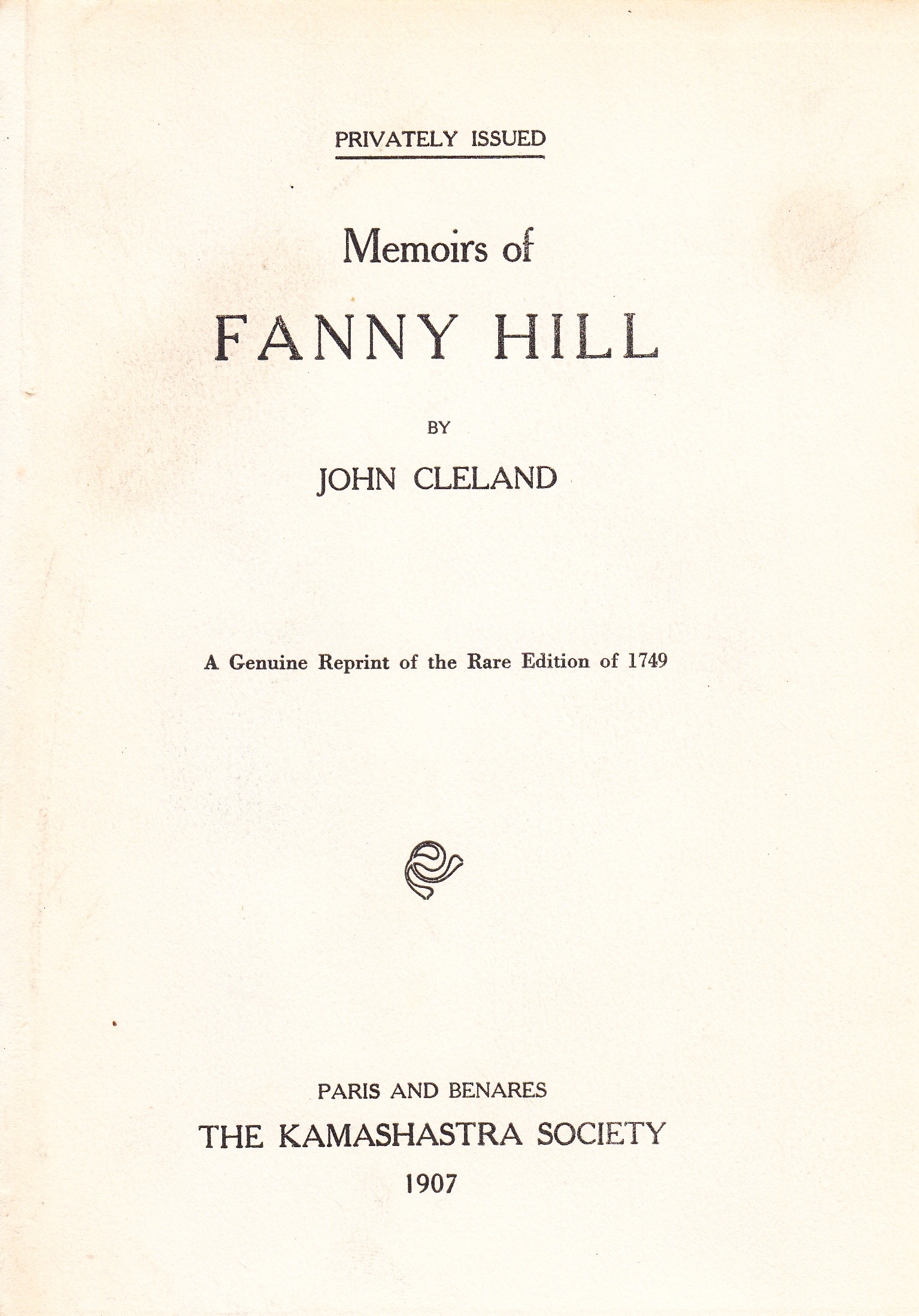
Memoirs of Fanny Hill, by John Cleland, A Genuine Reprint of the Rare Edition of 1749, Paris and Benares, The Kamashastra Society 1907
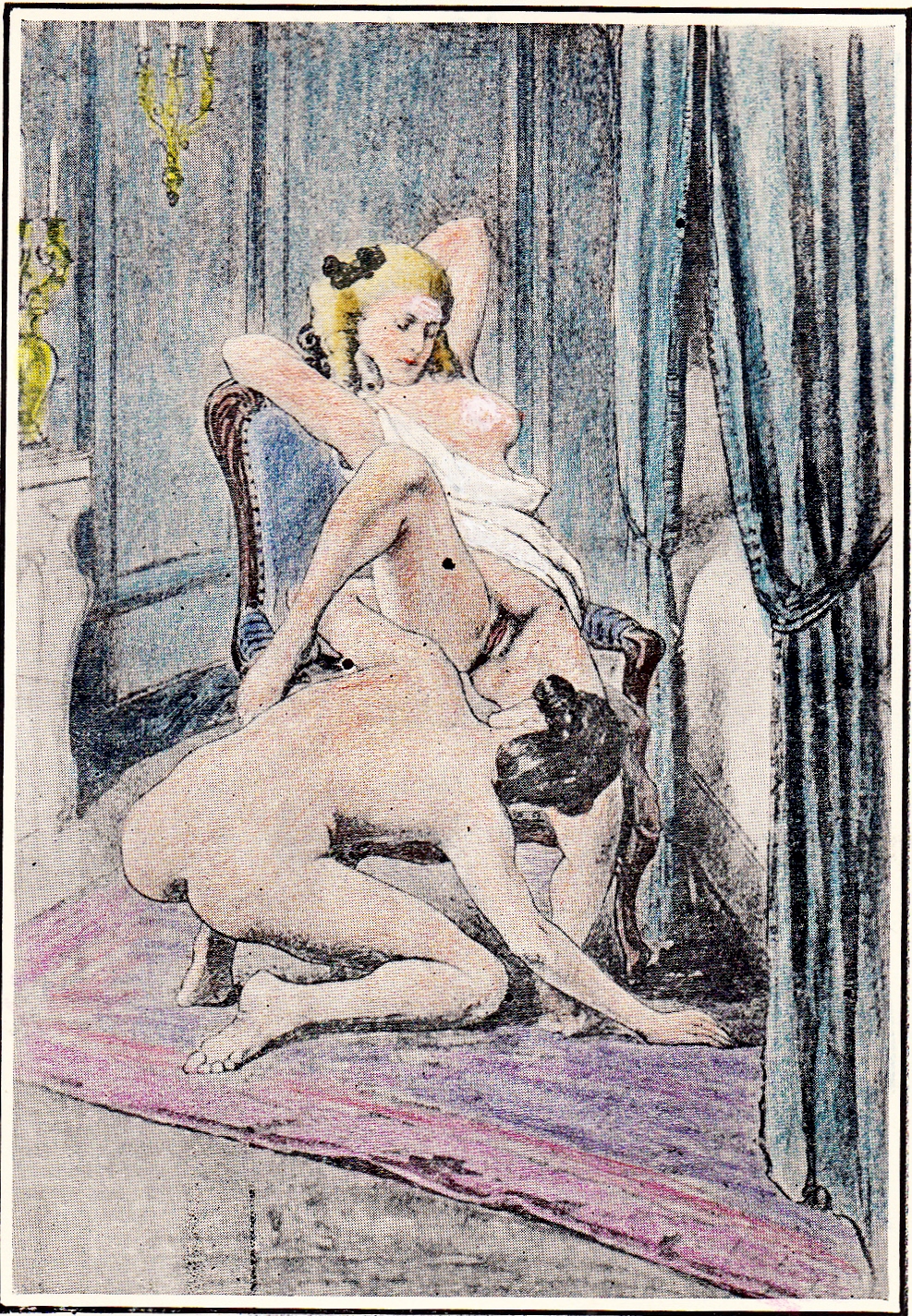
Memoirs of Fanny Hill, by John Cleland, A Genuine Reprint of the Rare Edition of 1749, Paris and Benares, The Kamashastra Society 1907
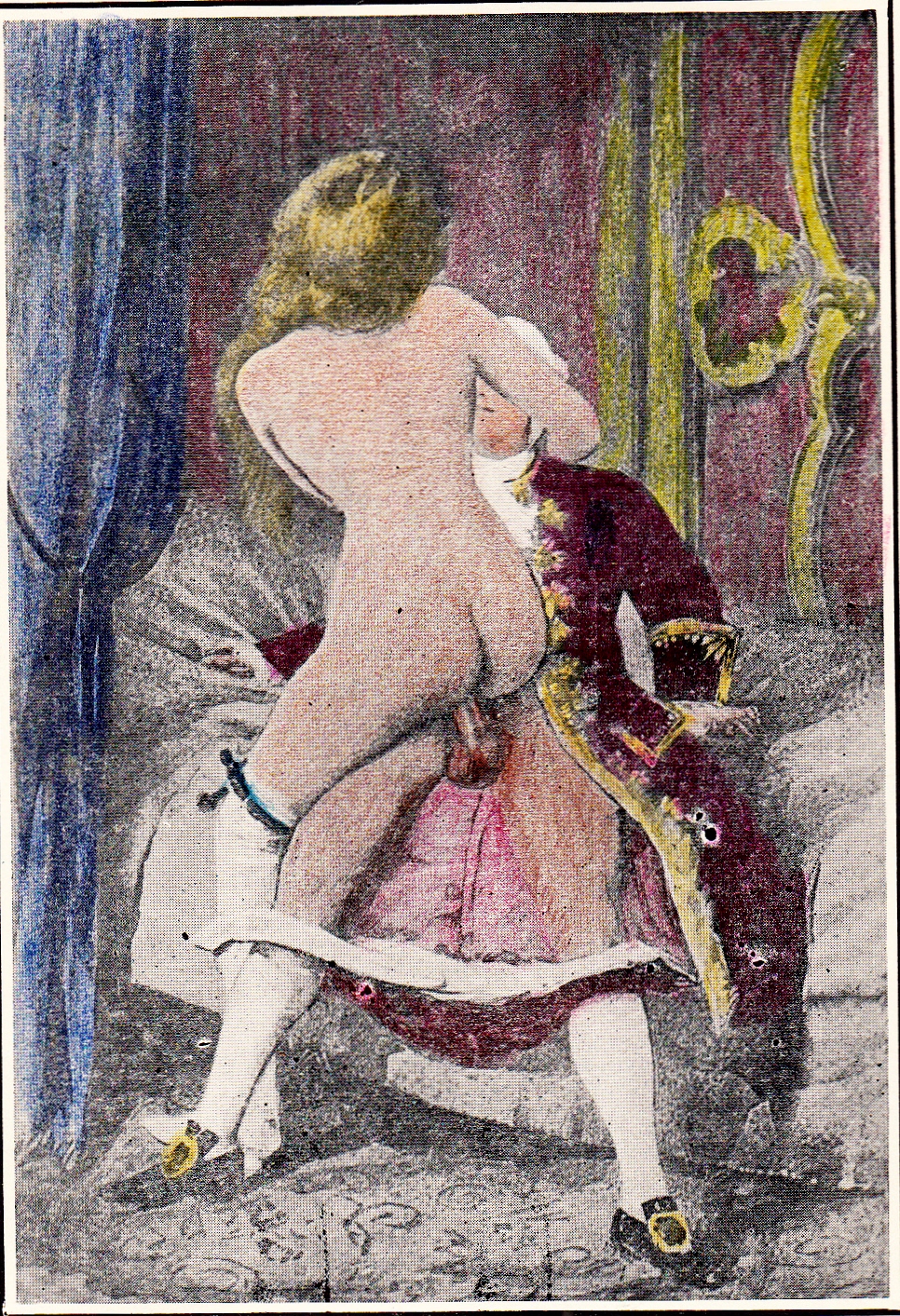
Memoirs of Fanny Hill, by John Cleland, A Genuine Reprint of the Rare Edition of 1749, Paris and Benares, The Kamashastra Society 1907
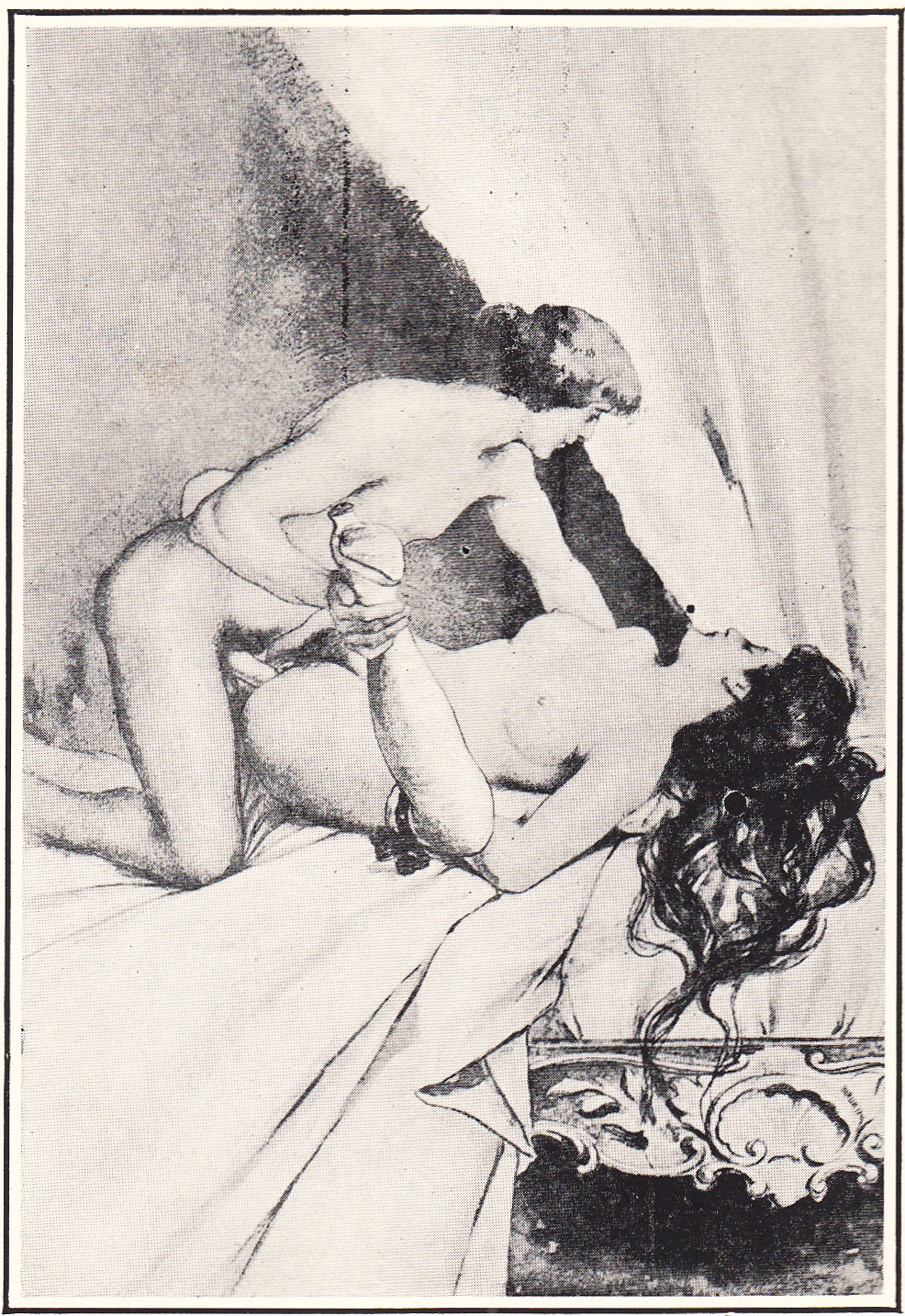
Memoirs of Fanny Hill, by John Cleland, A Genuine Reprint of the Rare Edition of 1749, Paris and Benares, The Kamashastra Society 1907
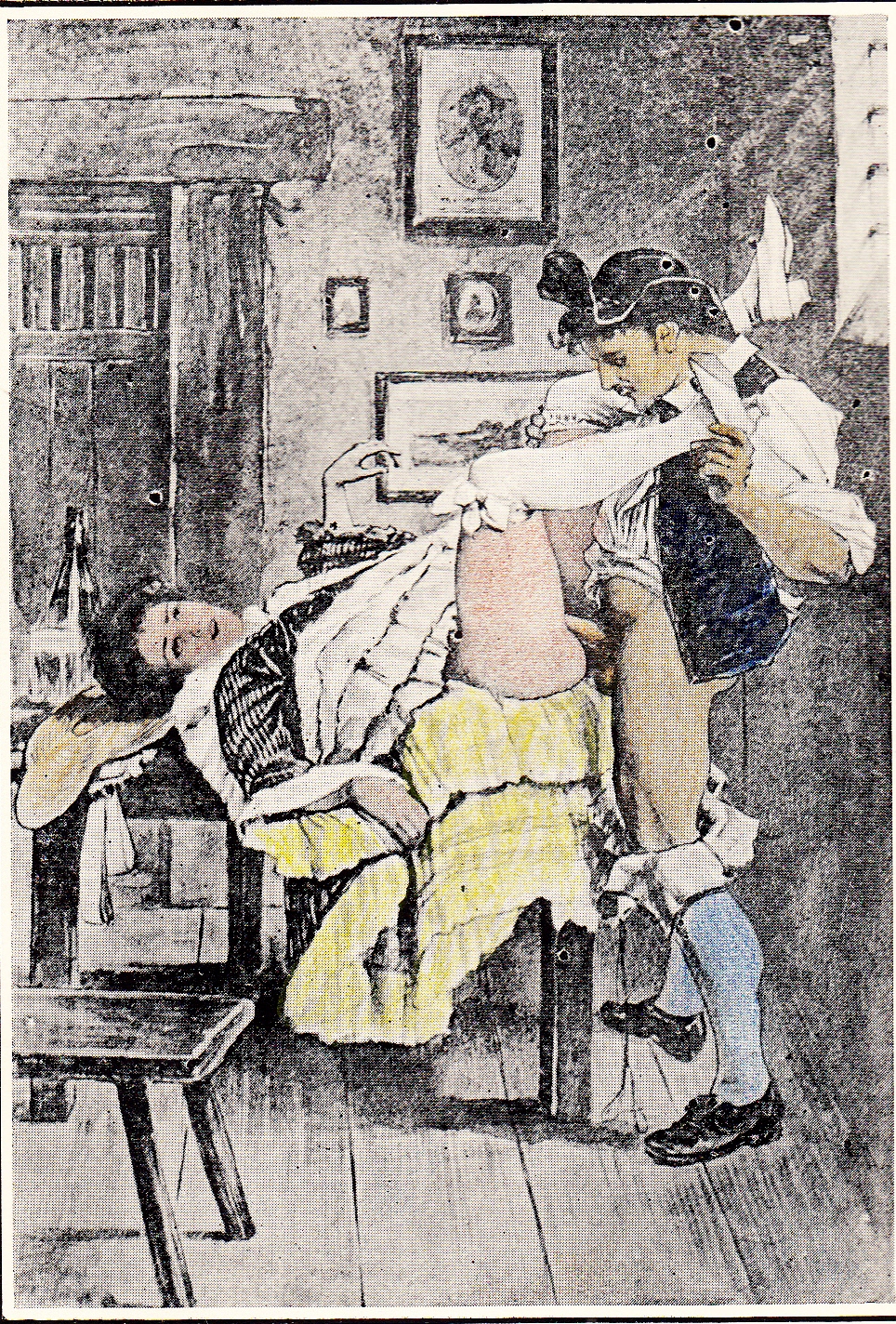
Memoirs of Fanny Hill, by John Cleland, A Genuine Reprint of the Rare Edition of 1749, Paris and Benares, The Kamashastra Society 1907
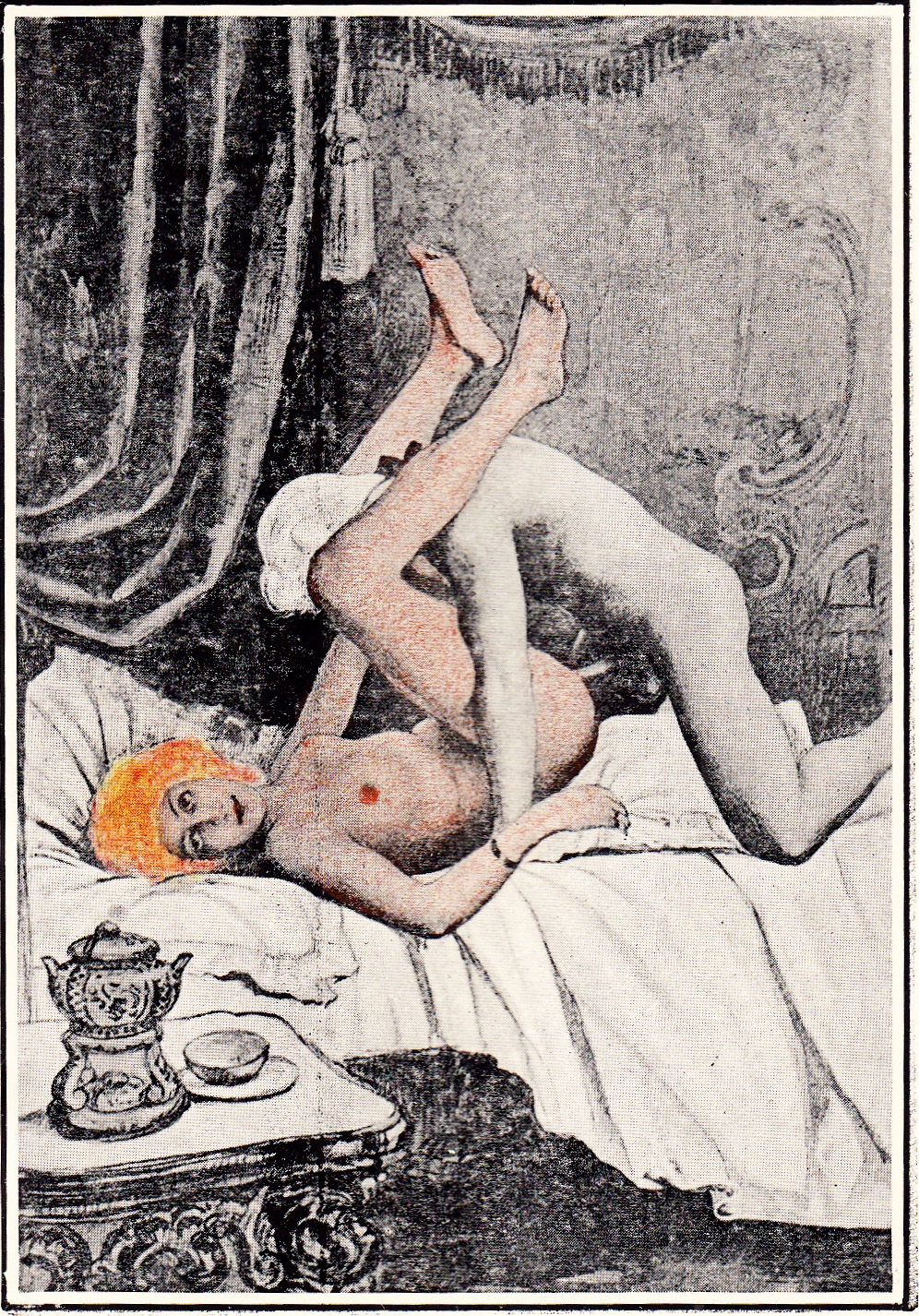
Memoirs of Fanny Hill, by John Cleland, A Genuine Reprint of the Rare Edition of 1749, Paris and Benares, The Kamashastra Society 1907
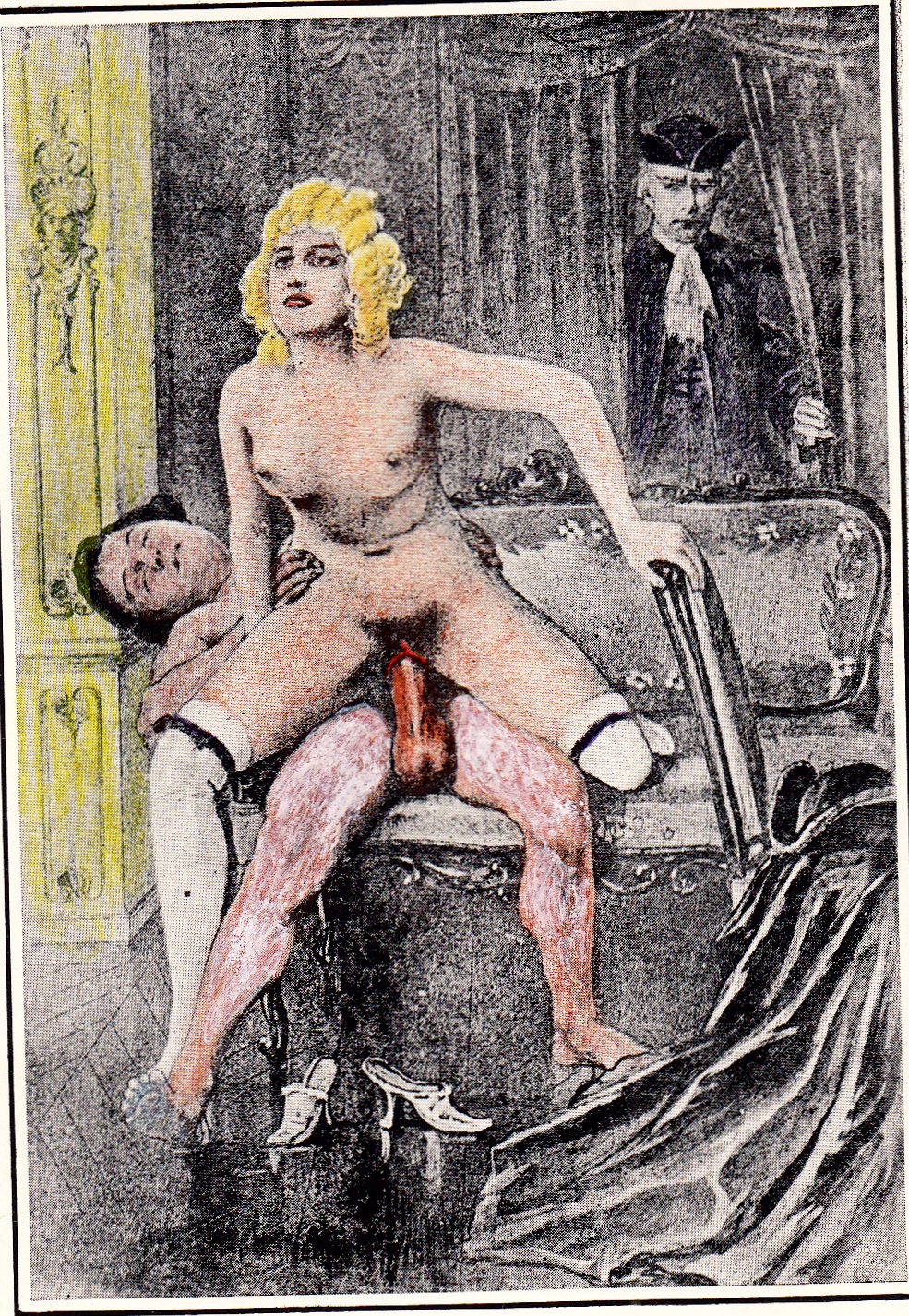
Memoirs of Fanny Hill, by John Cleland, A Genuine Reprint of the Rare Edition of 1749, Paris and Benares, The Kamashastra Society 1907
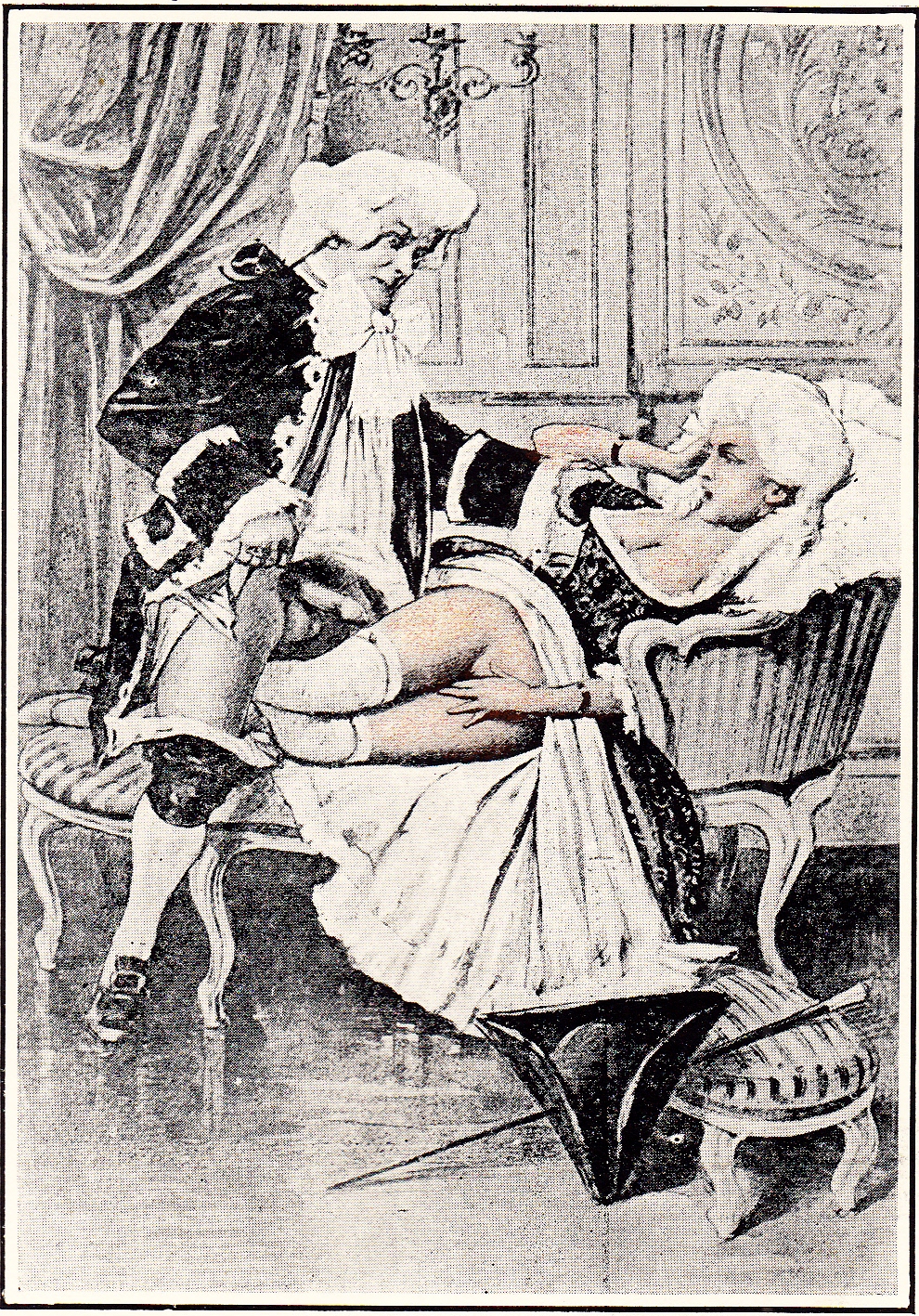
Memoirs of Fanny Hill, by John Cleland, A Genuine Reprint of the Rare Edition of 1749, Paris and Benares, The Kamashastra Society 1907
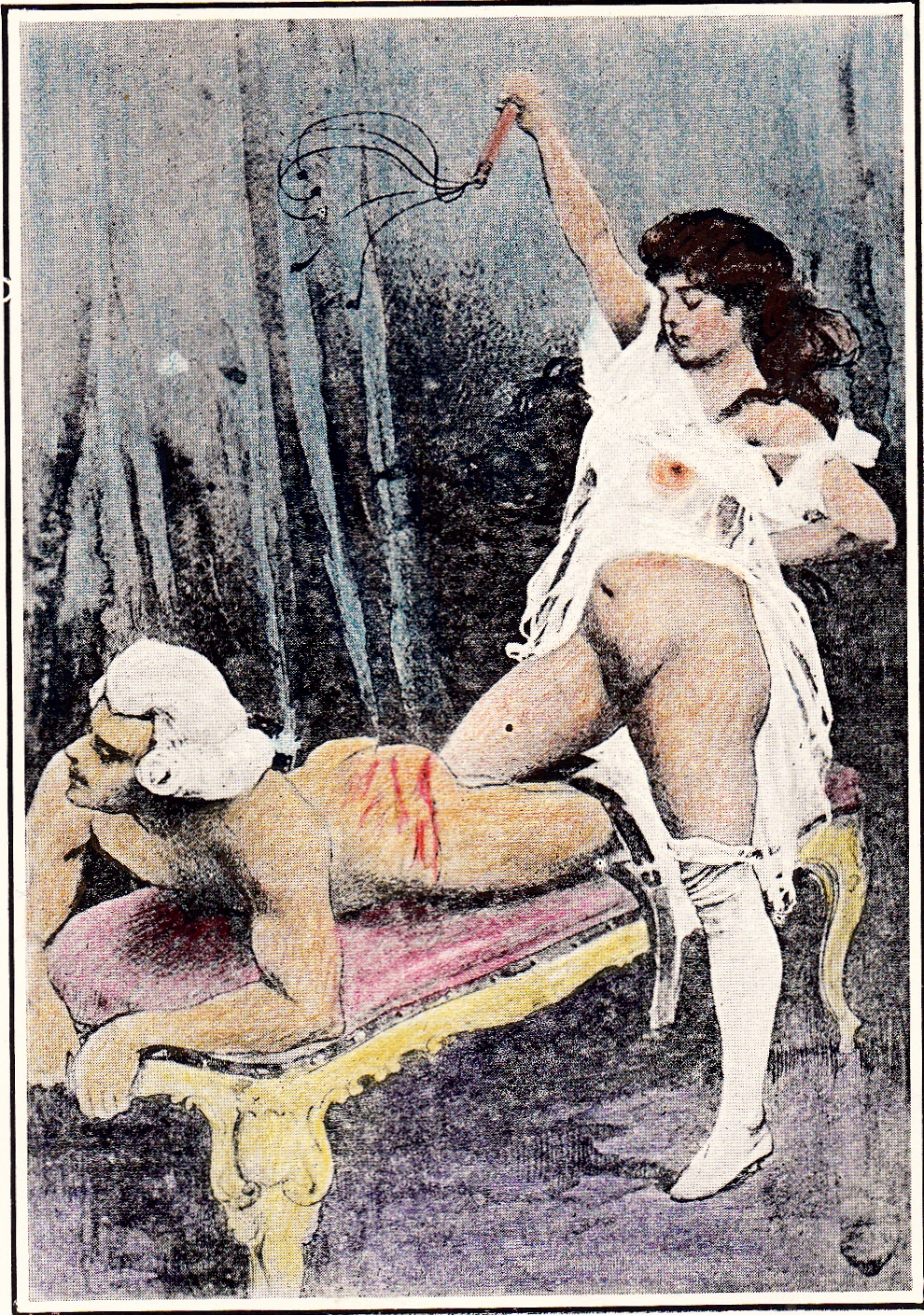
Memoirs of Fanny Hill, by John Cleland, A Genuine Reprint of the Rare Edition of 1749, Paris and Benares, The Kamashastra Society 1907
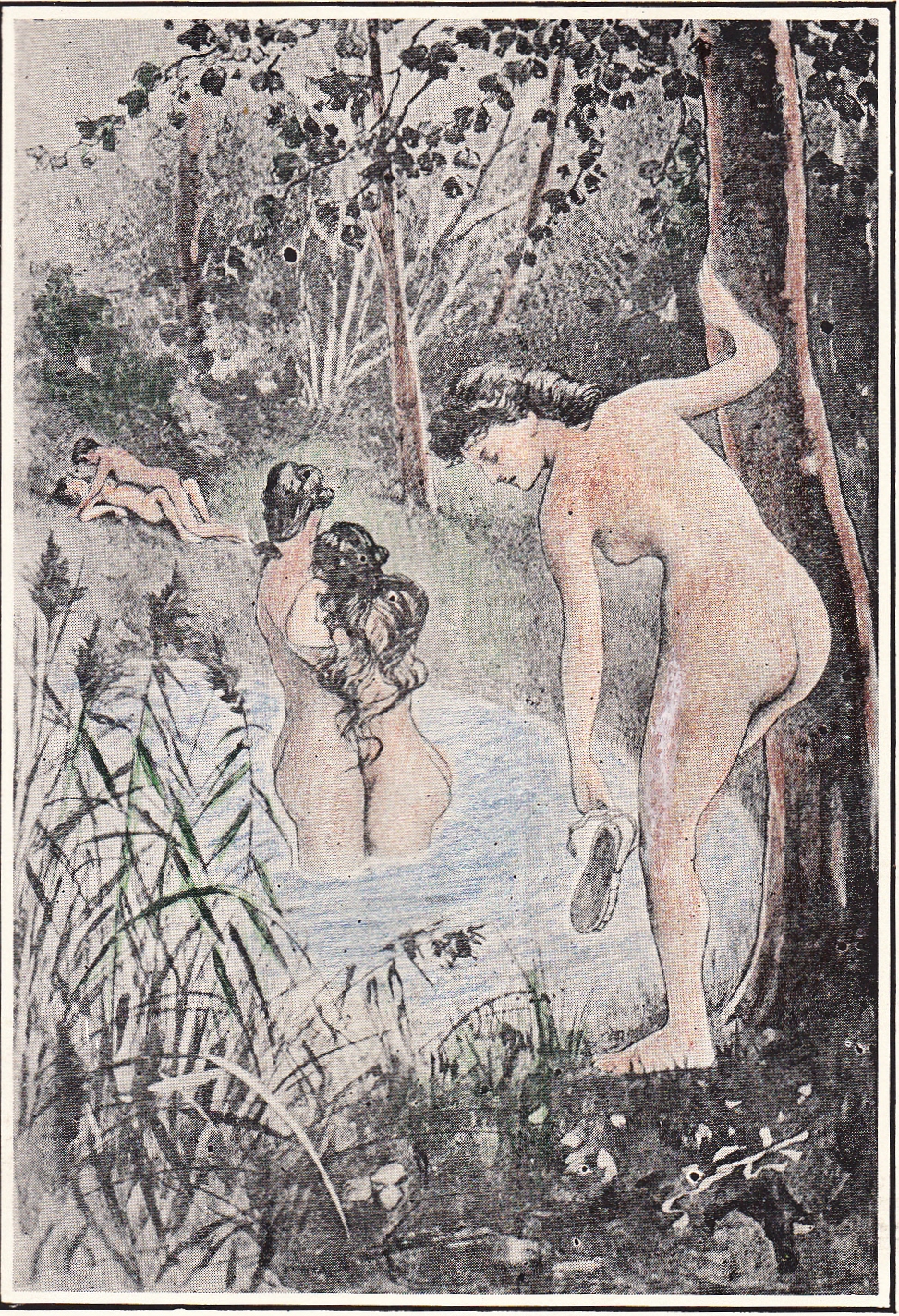
Memoirs of Fanny Hill, by John Cleland, A Genuine Reprint of the Rare Edition of 1749, Paris and Benares, The Kamashastra Society 1907
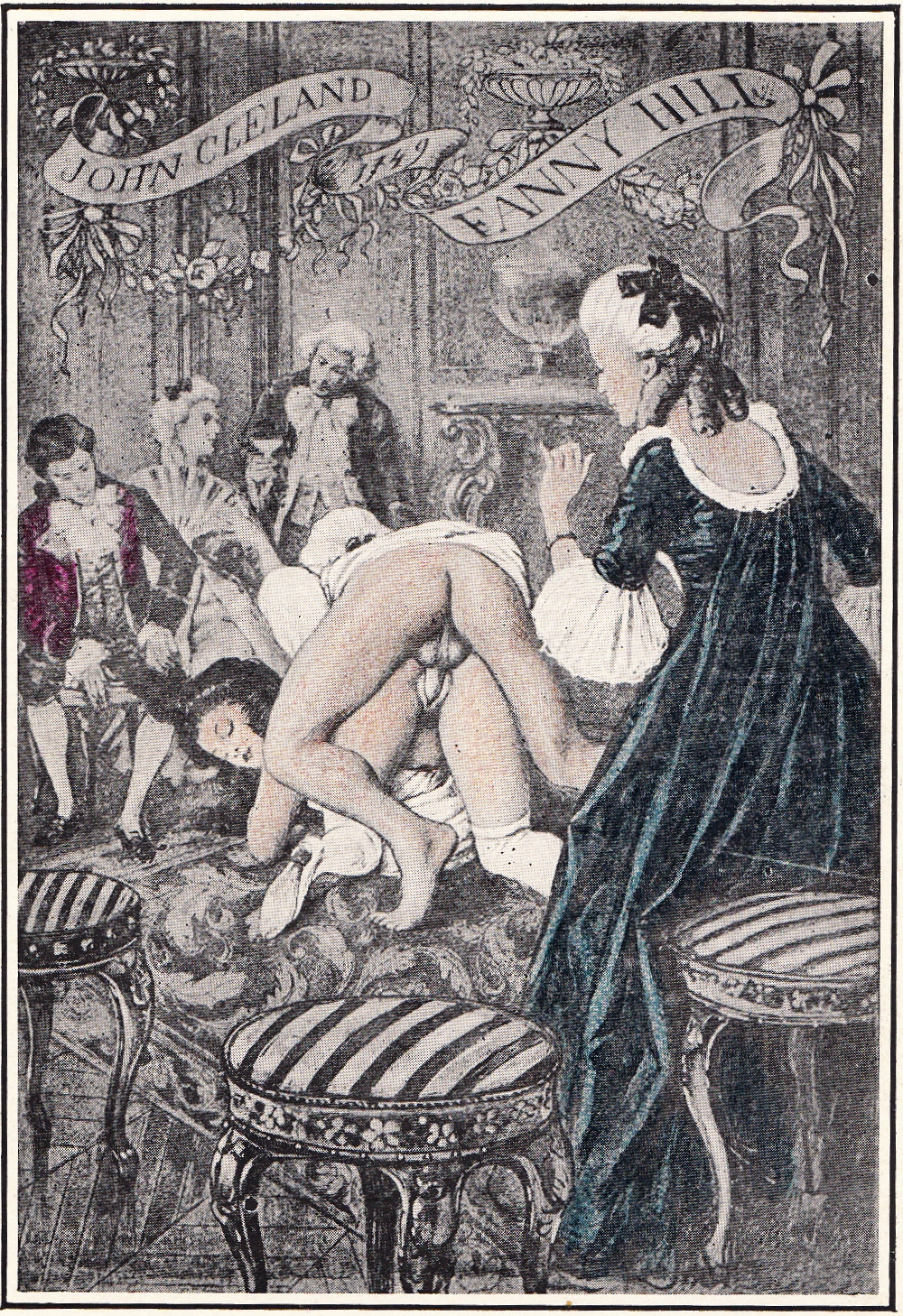
Memoirs of Fanny Hill, by John Cleland, A Genuine Reprint of the Rare Edition of 1749, Paris and Benares, The Kamashastra Society 1907
Would you like to support Flashbak?
Please consider making a donation to our site. We don't want to rely on ads to bring you the best of visual culture. You can also support us by signing up to our Mailing List. And you can also follow us on Facebook, Instagram and Twitter. For great art and culture delivered to your door, visit our shop.
